Welcome to Good Market Info!
Click the logo to return to the Good Market app
Welcome to Good Market Info! Click the logo to return to the Good Market global app.

Welcome to the 39 social enterprises, cooperatives, responsible businesses, civic organizations, and networks that became Good Market approved in February 2022! This month’s roundup includes new community members from the United States, South Africa, Zimbabwe, Kenya, Cameroon, Nigeria, the United Kingdom, Sri Lanka, India, Bangladesh, Thailand, and the Philippines. More than 2,112 enterprises across 77 countries are now part of the Good Market commons.
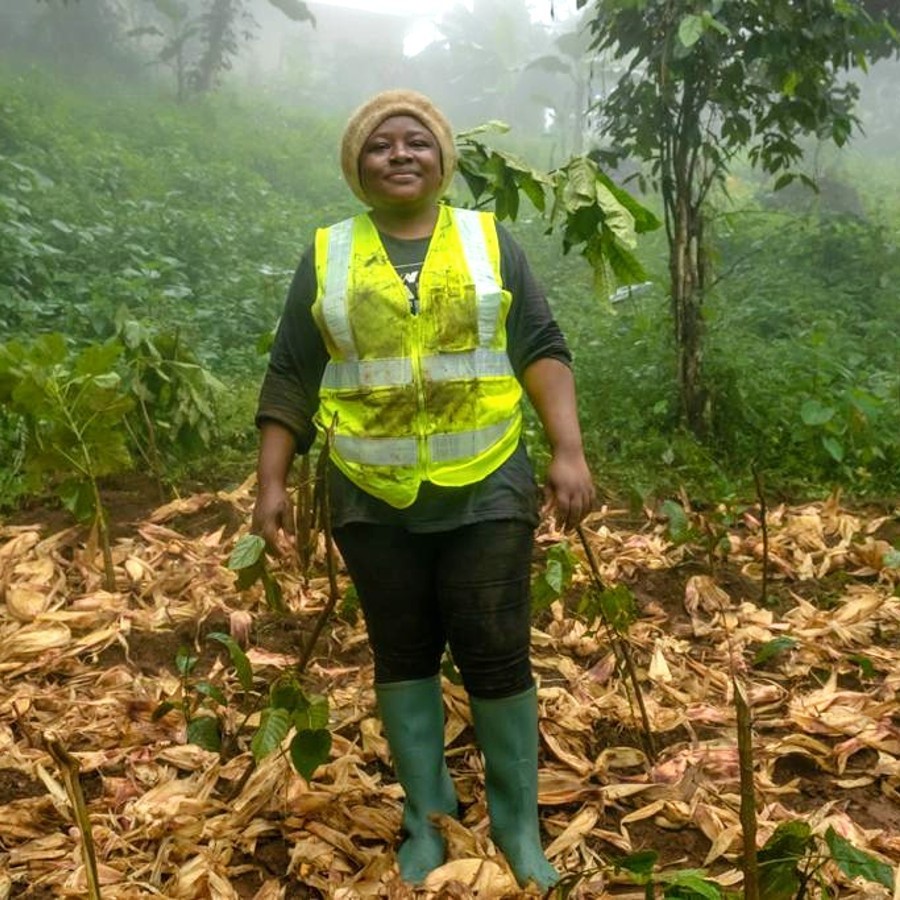
Ecological Balance Cameroon empowers local communities to undertake actions that ensure the long-term sustainability of their adjacent ecosystems. Their forest rewilding program involves planting and maintaining native forests to recharge ground water, provide habitat for wildlife, conserve soil, restock non-timber forest products, and mitigate climate change. They have established a native tree nursery in Buea with 25,000 seedling capacity, planted forests around water catchments, and enriched community forests in the Mount Cameroon region. Their climate-smart agriculture program focuses on capacity building and demonstration farms for forest gardening, a living food bank that grows and donates food to internally displaced people and families in need, and an indigenous seed bank and seed exchange network. Their Irvingia program develops forestpreneurs and value chains for non-timber forest products like wild bee honey, spices, and rattan. Ecological Balance also runs a sustainable menstruation initiative to produce and donate reusable cloth pads and conservation education campaigns that reach more than 50,000 people per year through events, television, radio, and social media. They are a not-for-profit organization and reinvest all surplus into expanding their social and environmental work.
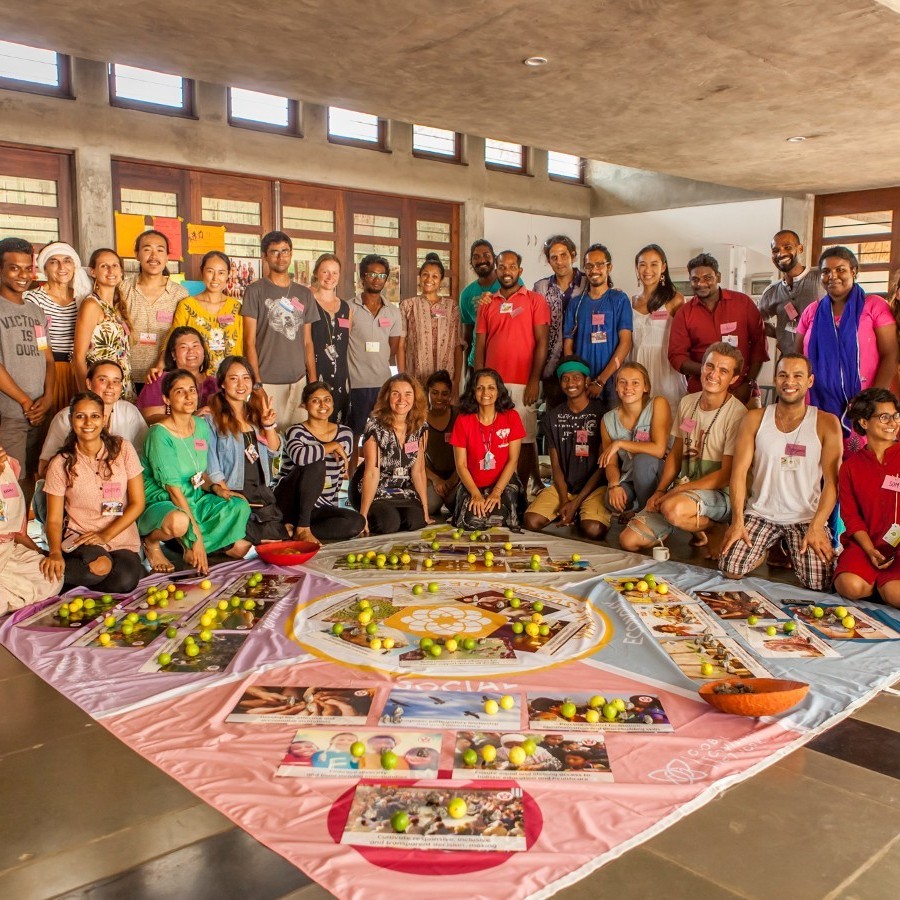
Chiang Mai, Thailand
REGEN-Nations is a whole systems education program that empowers individuals and communities to develop impactful projects. The course was inspired by the Ecovillage Design Education (EDE) curriculum with content created by Global Ecovillage Network Oceania & Asia (GENOA) and regenerative action experts from the region. It includes a six-month online learning journey, individual support from a dedicated facilitator, community space for ecosystem weaving, and a regenerative design lab. Participants are guided through the five dimensions of regeneration: social, cultural, ecological, economic, and whole systems design. Past projects have focused on permaculture, community gardens, food forests, regenerative agriculture, peace-building, health and well-being, community education, and social enterprise. REGEN-Nations is a not-for-profit initiative. Any surplus is used to provide seed funding for community projects and scholarships for people in need.

Booja-Booja began in 1999 with the goal of creating vegan treats from simple organic ingredients and operating in a way that respects the planet and the people and other animals on it. They started with vegan organic chocolate truffles and later expanded to vegan organic ice cream. All products are soy free and gluten free and produced in their own independent factory in Norfolk. Booja-Booja maintains direct, long-term trade relationships with their ingredient suppliers and has been sourcing handpainted gift boxes and Easter eggs from Kashmiri artisans for nearly two decades. Over the past several years, they have been working to reduce their packaging materials, maximize the proportion that is widely recyclable in the United Kingdom, and maximize the proportion made from recycled materials. They have also been reducing the amount of waste that their manufacturing facility sends to landfill. Booja-Booja is a certified Living Wage Employer and is certified organic by Soil Association.
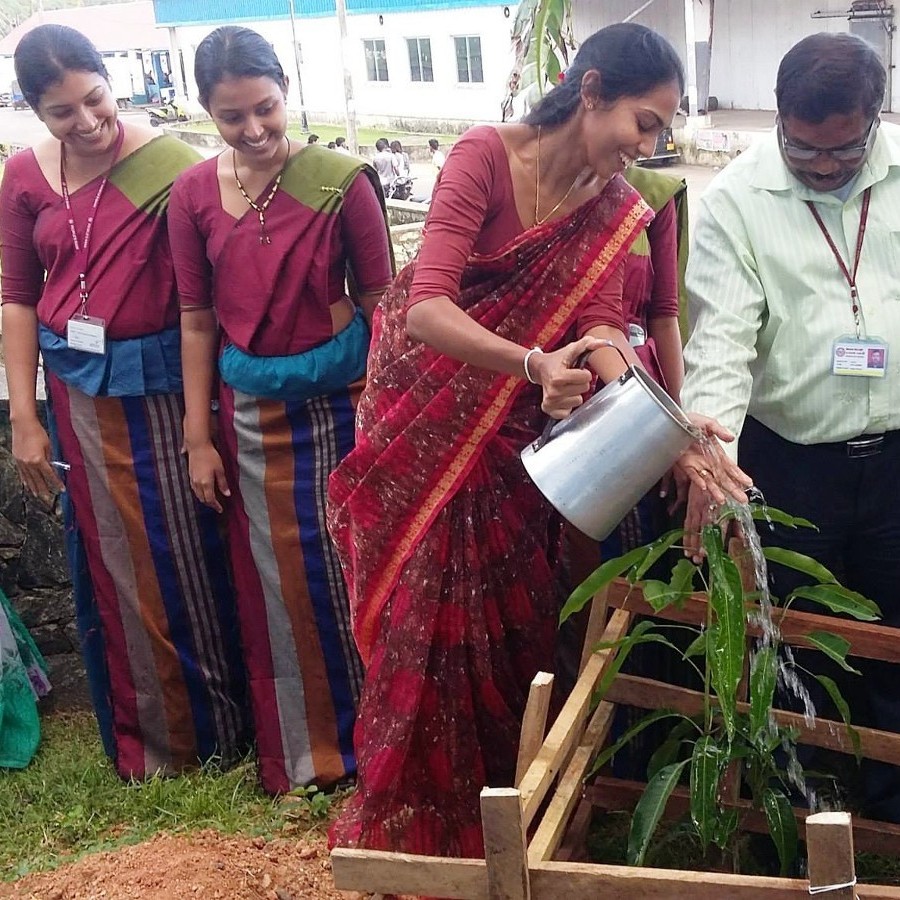
People’s Bank is a Sri Lankan state-owned bank that was started in 1961 to provide affordable, accessible, and efficient financial services that improve quality of life, support enterprises of all sizes, and contribute to national development. Their field coordinators work with marginalized communities to increase financial literacy, encourage saving, and support livelihood development and self-sufficiency. They maintain a network of more than 700 branches to cover rural areas and offer simplified financial documents, flexible customized services, development loan schemes, and special financial facilities for the cooperative movement. People’s Bank monitors waste and has reduction targets. They have updated their processes to minimize paper use and eliminate single-use plastic. Staff have reusable lunch boxes and water bottles. In Colombo, food waste goes to the municipal compost facility. Branch offices are encouraged to set up garden compost bins onsite. Remaining waste is sorted and recycled. People’s Bank donates funds for renewable energy development, biodiversity conservation, and waste management projects and allocates 6.9 percent of profits to rural development, education, health care, and enterprise development.
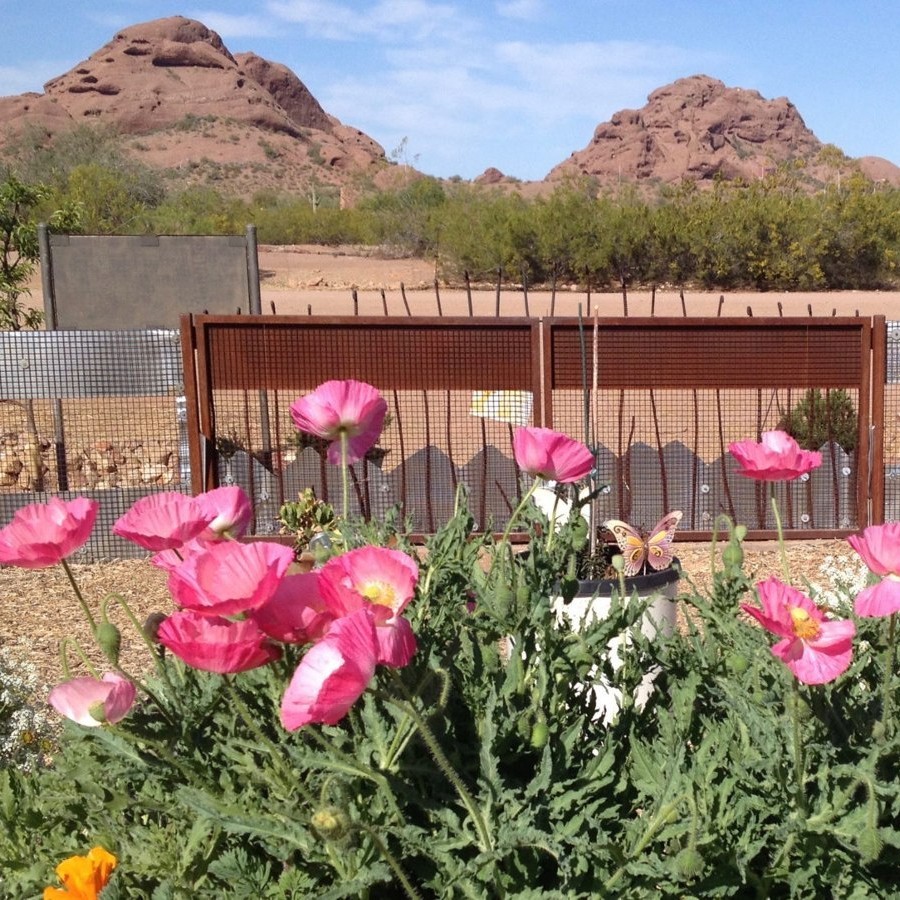
Phoenix, Arizona, United States
Arizona Community Land Trust (AzCLT) holds and protects land for the larger community. They provide long-term access to land for affordable housing, community gardens, agriculture projects, and other community initiatives while facilitating a deeper community connection and recognition of our mutual interdependence with all life. The community land trust model promotes land tenure based on stewardship, ecologically responsible use of land and resources, regeneration of the commons, and programs that serve lower income residents. Affordable housing and community-based agriculture cannot compete for land that is geared to make the highest possible return for investors. Land that has been removed from the speculative market and designated as a community asset provides stable support for these programs. AzCLT is part of the National Community Land Trust Network and is registered as a 501(c)3 not-for-profit organization.
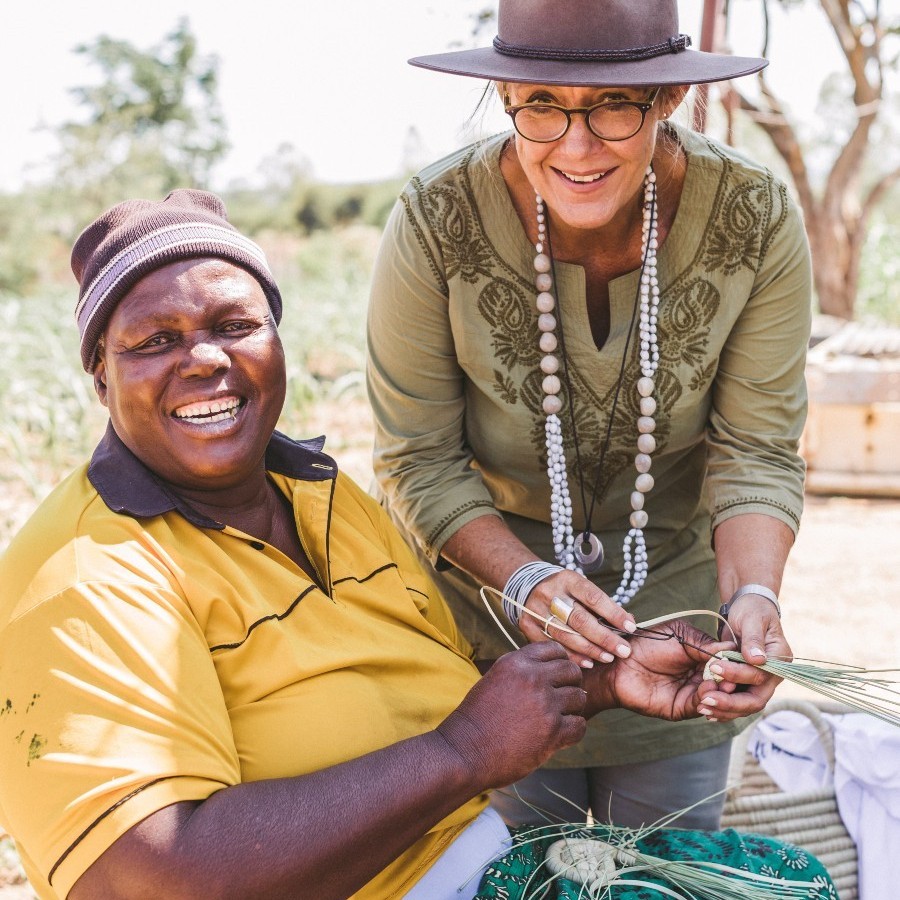
Collaborative Craft Projects (CCP) works closely with artisan communities throughout Zimbabwe and regionally to design, develop, and produce handcrafted housewares and furniture. They specialize in bespoke basketry and flooring solutions that are made from sustainably sourced natural resources and showcase traditional skills and craftsmanship. Raw materials include Ilala palm, Ibhuma reed, and sisal. In addition to their own signature collections, CCP offers assessments and workshops for development partners, interior design services and installations for boutique hotels, spas, and lodges, and curation, procurement, product development, and private label production services for designers, brands, and retailers. Their work creates a valuable social outlet for rural women and enables them to provide for their families and gain financial freedom.
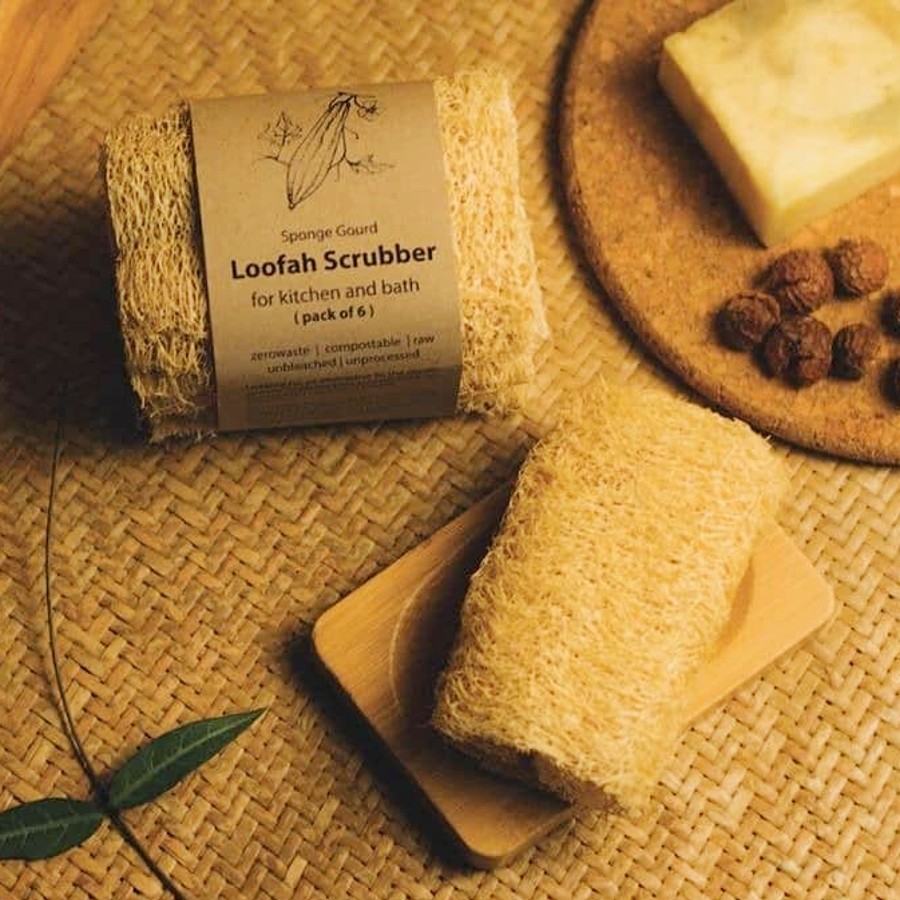
Geosmin is the Indian brand and online store for Indisutras, which offers zero waste sustainability solutions to companies around the world. They specialize in designing, developing, and producing natural alternatives to plastic consumer goods and creating livelihood opportunities for rural communities. Products include loofah, sisal, and vetiver scrubbers, bamboo and natural lacquerware amplifiers, bamboo toothbrushes, copper tongue scrapers, neem combs, coconut shell bowls, wooden cutlery kits, bamboo straws, sisal straw cleaners, cotton produce bags, and water activated paper tape. Products are made from sustainably sourced, compostable materials by local artisans in Karnataka and other areas of India. Indisustras offers product development services, custom branding, and environmentally responsible packaging. They partner with other social and environmental organizations working for a better future and use their profits to expand services to farmers and artisans and support native tree afforestation initiatives.
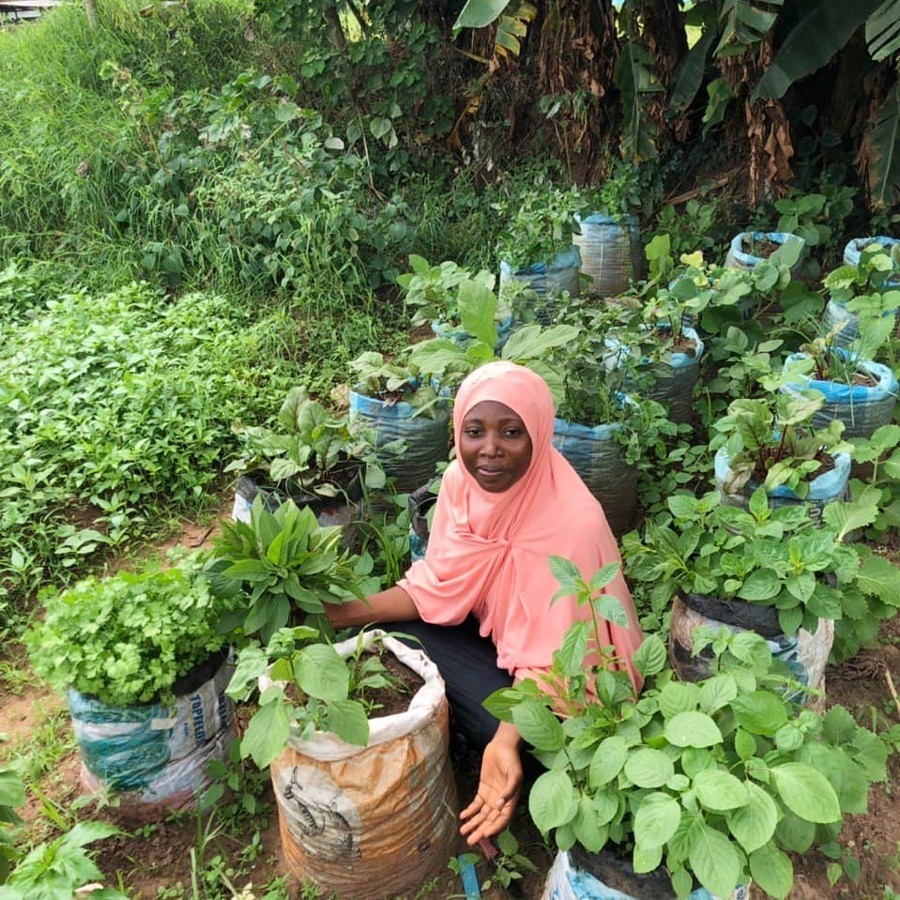
Prudent Organic Farms is developing an ecosystem for sustainable urban agriculture and a food secure Africa. They offer naturally grown superfoods from their own farm including fresh produce, mushrooms, mushroom tea, dried ugu and ewedu, banana and plantain flour, spice mixes, and more. They also supply mushroom grow kits, planting materials, and natural farming inputs like mushroom substrate, potting mix, organic fertilizer, vermicompost, seed starter, liquid plant nutrients, neem, and other biopesticides. Through Ufarmy they provide practical online courses and consultancies on mushroom cultivation, urban agriculture, and natural farming techniques. Students can learn at their own pace and receive a certificate at the end of the program. Prudent Organic Farm wants to make it easier for people to access healthy organic products, grow their own food, or start a sustainable agribusiness in any African city.
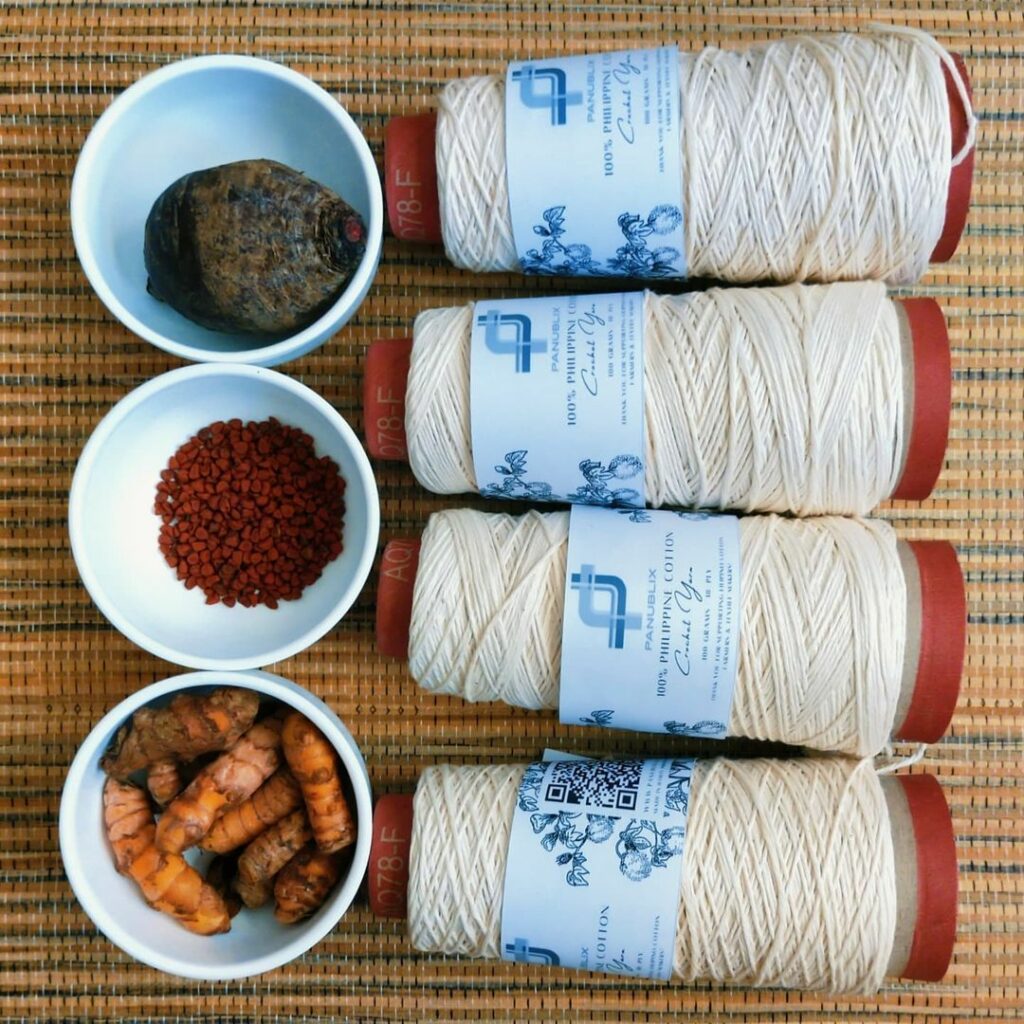
Panublix is a sourcing platform connecting creatives with tropical yarns, textiles, and artisan craft so they can design a more sustainable future that respects cultural heritage, humanity, and biodiversity. Philippine tropical fibers like cotton, abaca, and piña provide a natural, environmentally responsible alternative to synthetic materials made from fossil fuels. Panublix partners with the the Philippine Textile Research Institute to make these tropical yarns more accessible. Fibers are sustainably harvested by farmers in the Bicol and Western Visayas region and spun in the Regional Yarn Production and Innovation Center (RYPIC) in Iloilo, which was historically known as the textile capital of the Philippines. They offer Philippine cotton crochet yarn, weaving yarn, and handwoven fabrics, cotton abaca blends, cotton piña blends, and handwoven piña fabric made from the finest pineapple liniwan fibers. Their Panublix Weaving Enterprise Digital Enabler (PWEDE) supports artisanal textile enterprises with online market access. Panublix is a member of Catalyst 2030.

RHODA is an electric mobility company committed to making great design and high quality products affordable and sustainable. Their smartbicycle is designed and built in Sri Lanka and provides a convenient, economical, and fun alternative to fossil fuel transport. The goal is clean breathable air and cities that are cycle friendly and free from traffic congestion and pollution. The bike has all terrain tires, an inclusive step through design, and smartphone access with biometric authentication. It is faster than traffic and has a 60 kilometer range making it ideal for daily office commutes and errands. RHODA electric bikes are powerful enough for steep, sandy, and rough roads and are already being used in Sri Lanka’s tea estates.
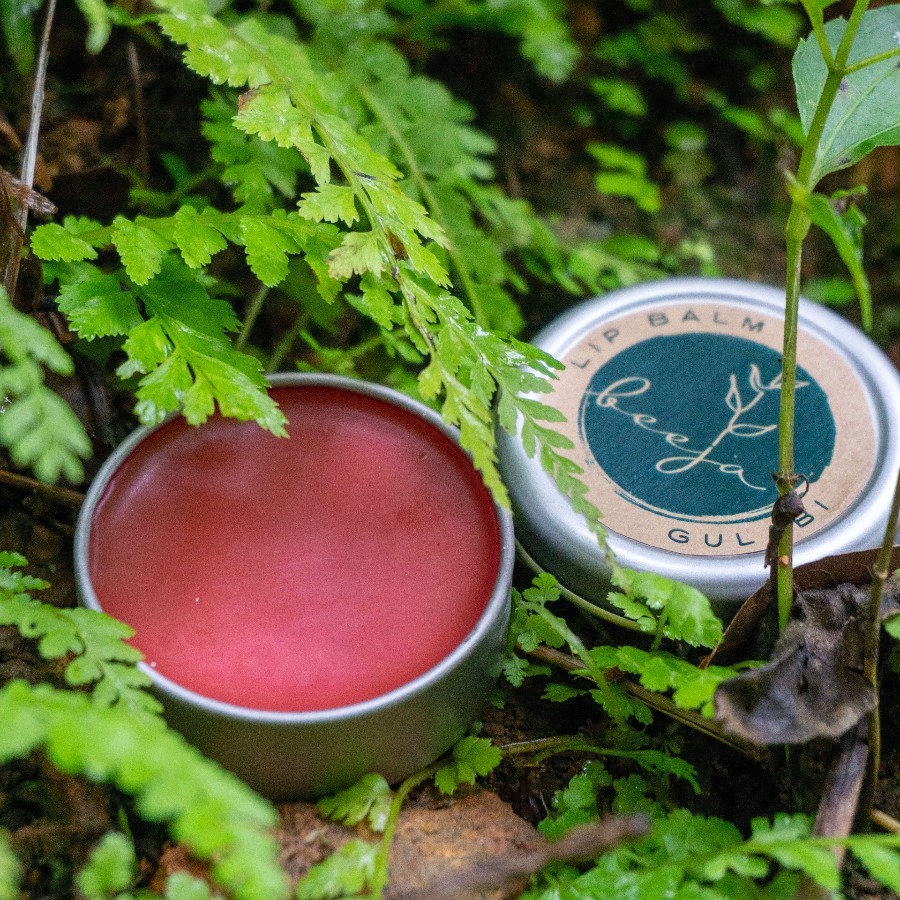
Beeja Botanicals creates handcrafted personal care products that consider the wellbeing of the user, the community, and the environment. They are committed to making sustainable, ethical, and effective self care more affordable while also fairly compensating people for materials and labor. A measure of success in balancing affordability and fair compensation is that their employees and partners are able to afford Beeja Botanicals for their own use. The majority of the ingredients in their lip balms, hand creams, and body butters are sustainably harvested from the wild forests surrounding Sirsi in the Western Ghats and extracted by hand using ancestral knowledge and techniques. Through this value addition, they help local Adivasi communities sustain traditional livelihoods. Beeja Botanicals uses packaging that is compostable, recyclable, reusable, or returnable.
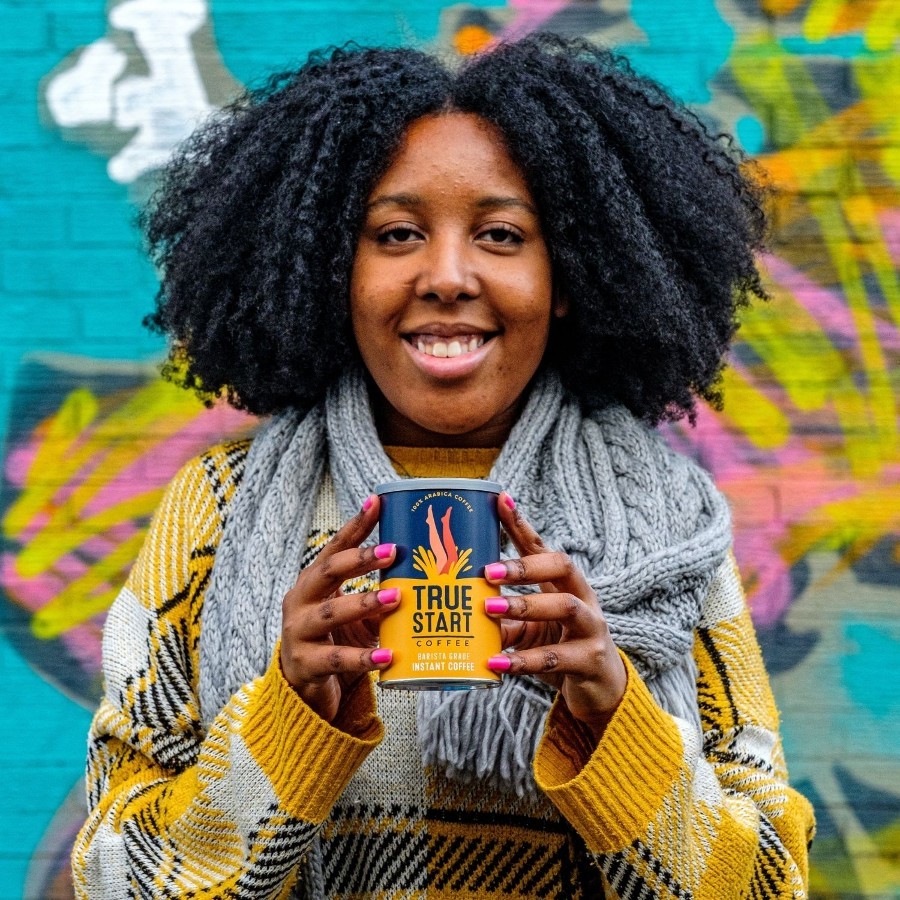
TrueStart Coffee specializes in ethically sourced coffee with a stable caffeine content to prevent energy crashes and jitters. Their instant coffee, whole bean and ground coffee, iced coffee drinks, and single-serving coffee bags are all natural, sugar and dairy free, and suitable for vegan and keto diets. All products are carefully sourced and some are organic and Fairtrade certified. TrueStart is committed to environmentally responsible packaging and waste reduction. Single-serving coffee bags are home compostable, instant and iced coffees come in easily recyclable tins, and ground and whole bean coffees come in the True Bio Bag which is certified compostable according to European EN13432 standards. TrueStart partners with Cycle of Good to upcycle their hessian coffee sacks into beautiful functional bags and create employment opportunities in Malawi. They support their local community by donating coffee products to FareShare South West, a food redistribution charity in Bristol. TrueStart is an accredited Living Wage employer and a certified B Corp.
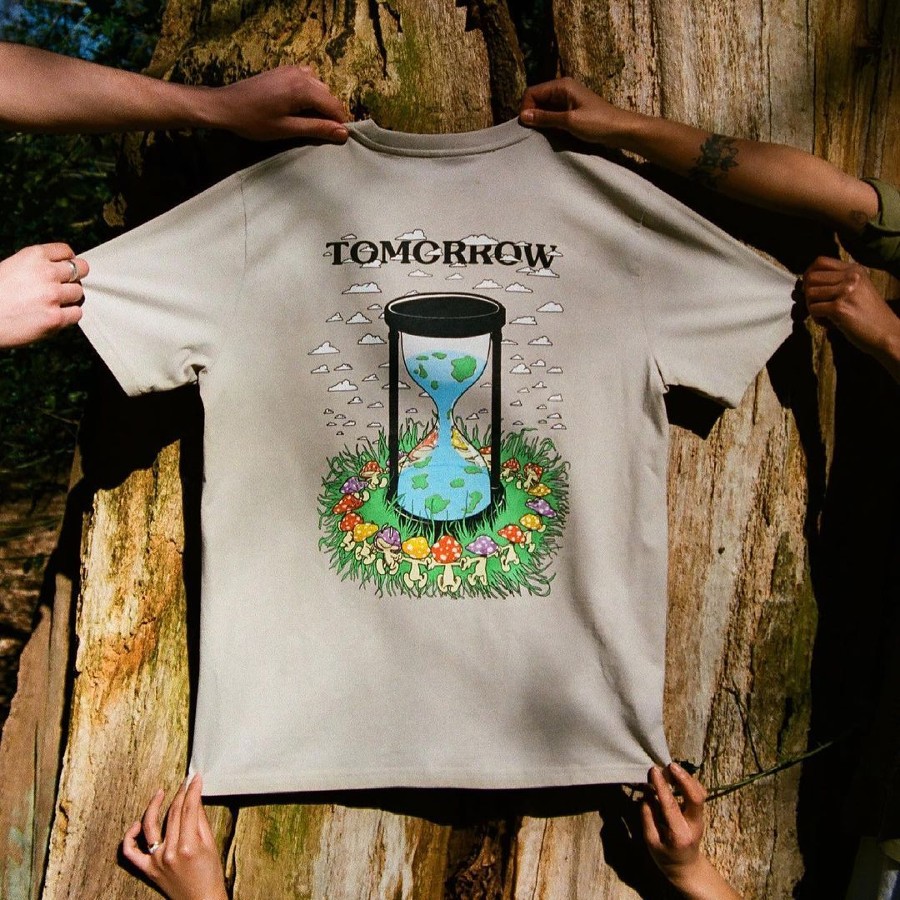
Tomorrow uses the power of art and design as communication tools to inspire action and positive change. They create tees, sweatshirts, and totes that are made from organic cotton and recycled materials with in-house and collaborative designs that drive engagement and support for important social and environmental causes. For collaborative collections, they share profits with artists and donate to partner organizations. For example, the One Ocean collection supported ocean conservation through Sea Shepherd UK, the Solastalgia collection supported forest protection through Stand for Trees, and the Power of the Sun collection contributed to solar power for remote off-grid communities through Little Sun. Tomorrow products are made-to-order to minimize waste. They offset transport carbon to lower their climate impact and use organic cotton and low-impact printing to reduce pollution and water use.
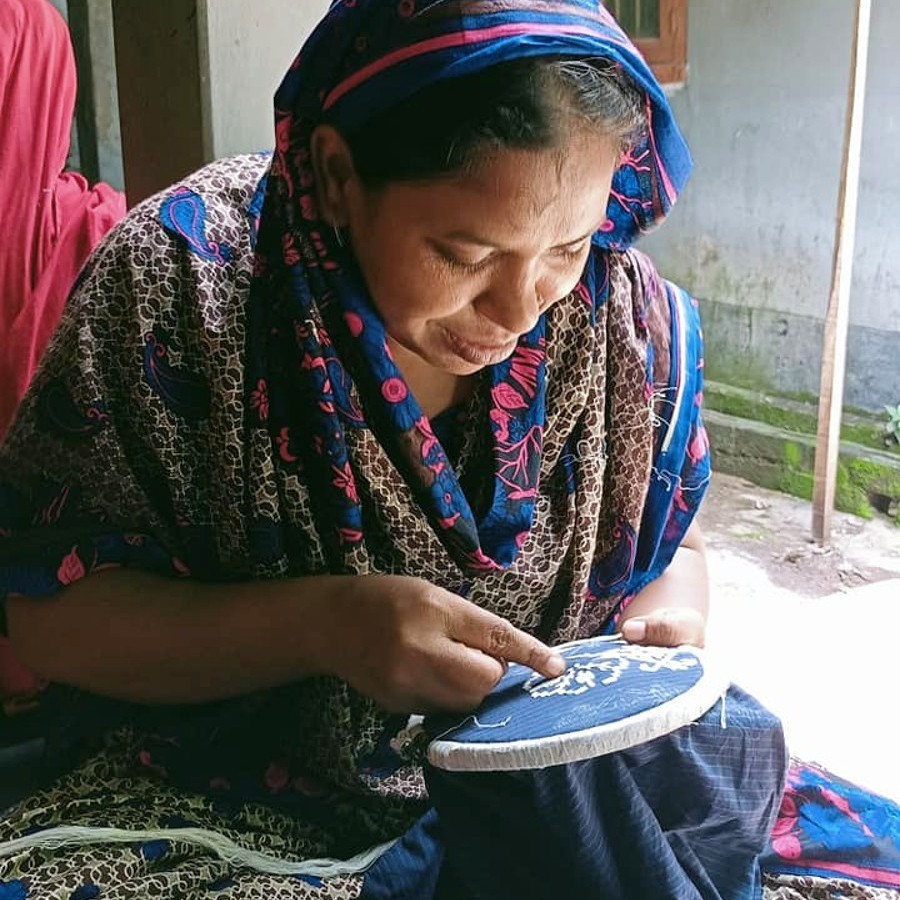
Thanapara Swallows Development Society is working to eliminate the causes of poverty in rural Bangladesh. The initiative was first started in 1973 to create livelihood opportunities for widows in Thanapara village after the Bangladesh Liberation War. Today, they employ nearly 200 rural women and produce clothing and housewares for fair trade partners around the world. The women dye yarn using natural and azo-free dyes, create handwoven and hand embroidered fabrics, and sew them into finished products. Thanapara Swallows provides ongoing training and maintains a training center with domitory accommodation that can also be used by other local organizations. They provide health benefits, a retirement fund, a day care center, and education support for producers’ children. Social programs include primary education services and community organizing related to village development, agricultural rights, access to services, and addressing issues like early marriage, dowry, and domestic violence. Thanapara Swallows is a guaranteed member of the World Fair Trade Organization (WFTO).
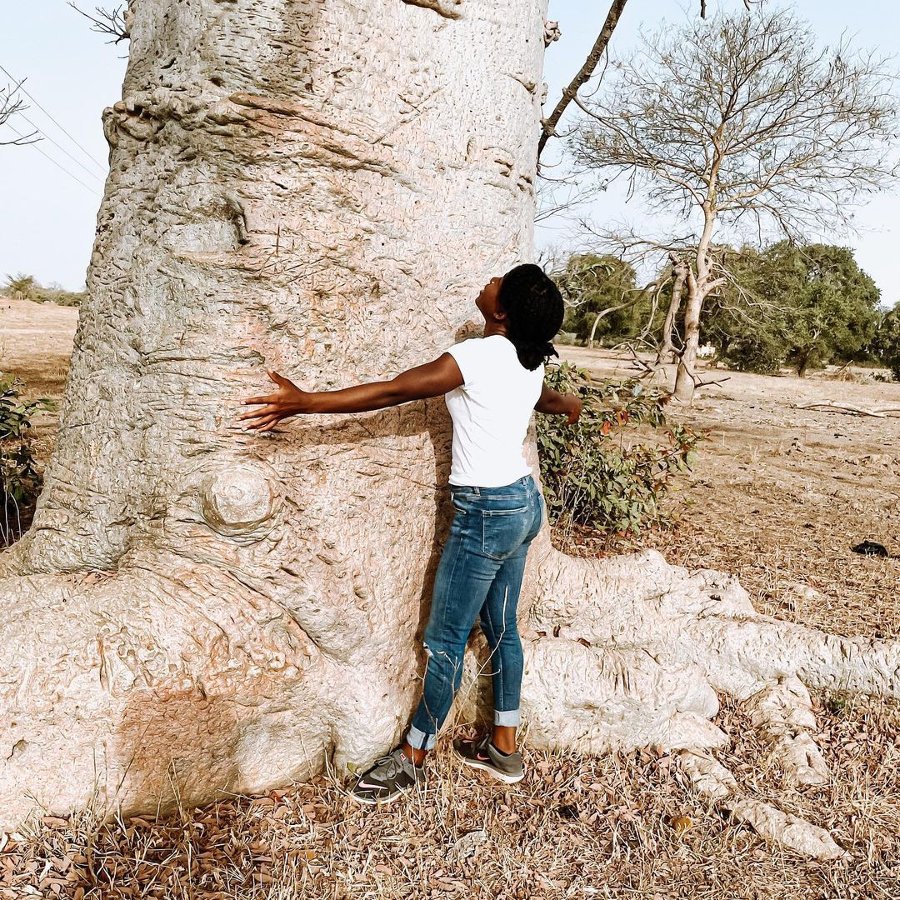
Germiston, South Africa
Mama’s Creation Foods offers natural African superfood supplements that are ethically and sustainably sourced from African women producers. Their Amaranth Daily Greens Blend and Baobab Balance & Beauty Blend have been carefully formulated for mind and body wellness and can be easily added to water, juice, smoothies, oatmeal, baked goods, and more. Mama’s Creation Foods partners with grassroots organizations that empower women, create employment opportunities in rural African communities, and support ecosystem restoration and regenerative agriculture practices. In addition to sourcing ingredients directly from women producers at fair trade premiums, they donate one percent of profits to organizations addressing climate change and food insecurity in sub-Saharan Africa. Mama’s Creation Foods is part of Nourishing Africa, Changing Narratives Africa, and Women in Africa (WIA) Initiative.
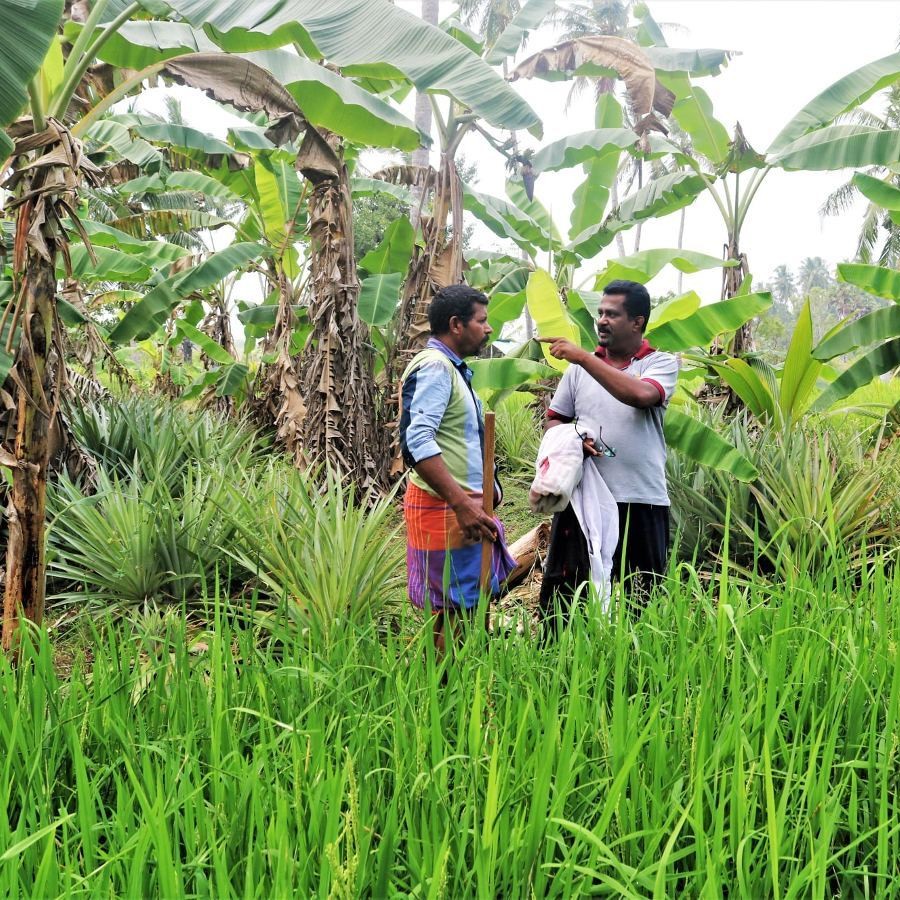
Sri Jayawardenepura Kotte, Sri Lanka
South Asia Partnership Sri Lanka (SAPSRI) was started in 1981 to uplift the lives of vulnerable communities in Sri Lanka. They are part of an international network of development organizations that includes partners in Bangladesh, India, Nepal, Pakistan, and Canada. Their holistic approach aims to create just and equitable societies through self reliance and active community participation. SAPSRI works with marginalized rural communities on poverty eradication, regenerative agriculture, climate change adaptation, disaster risk reduction, water management, and environmental conservation. They are an accredited civil society organization of the United Nations Convention to Combat Desertification (UNCCD) and work closely with national and local government agencies to achieve the Sustainable Development Goals (SDGs). SAPSRI is registered as a not-for-profit voluntary social service organization.
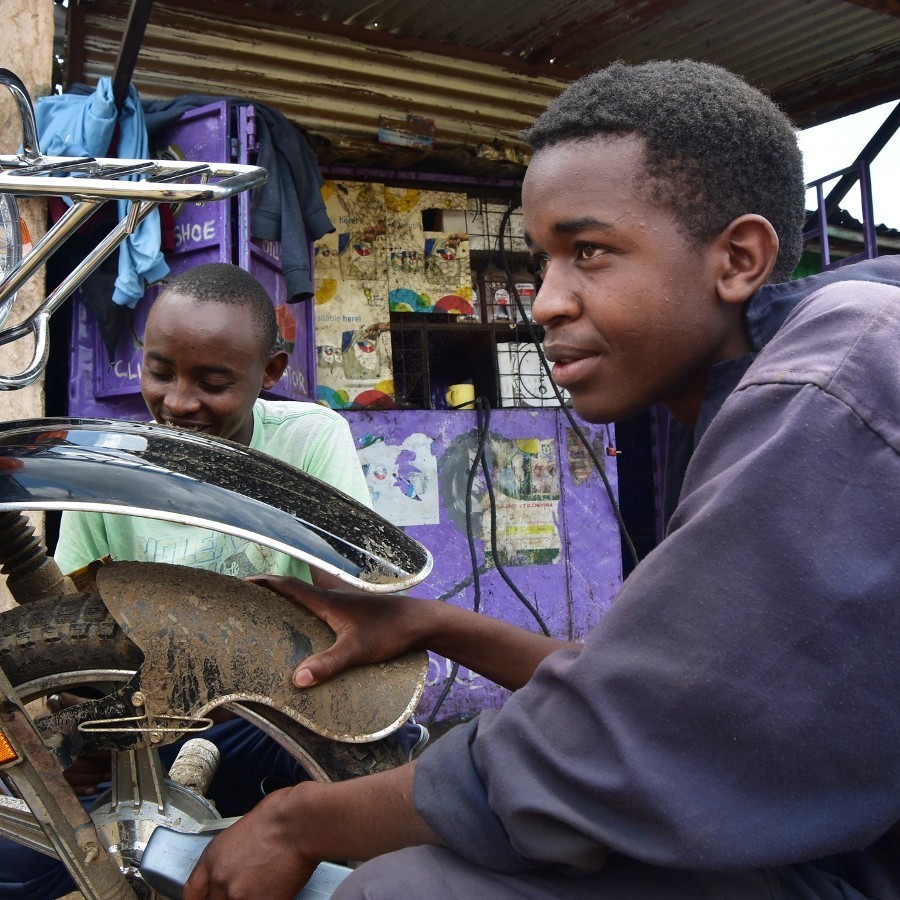
Jitolee Voluntary Service Association reduces crime and unemployment by offering free hands-on skills to young people and empowering them with an entrepreneurial mindset to be creative and productive in society. Youth unemployment in Kenya is at 65 percent. Jitolee partners with skilled technicians in the informal sector to provide free training and apprenticeships to at-risk youth in low-income areas of Nairobi. They target people between 16 and 35 years old who do not have access to formal education or employment. Training opportunities include hair dressing, tailoring, catering, motorbike repair, panel beating, vehicle mechanics, welding and fabrication, carpentry, plumbing, electrical repair, smartphone repair, and computer services. Jitolee is registered as a not-for-profit service organization under the Societies Act. They are a member of Catalyst 2030.
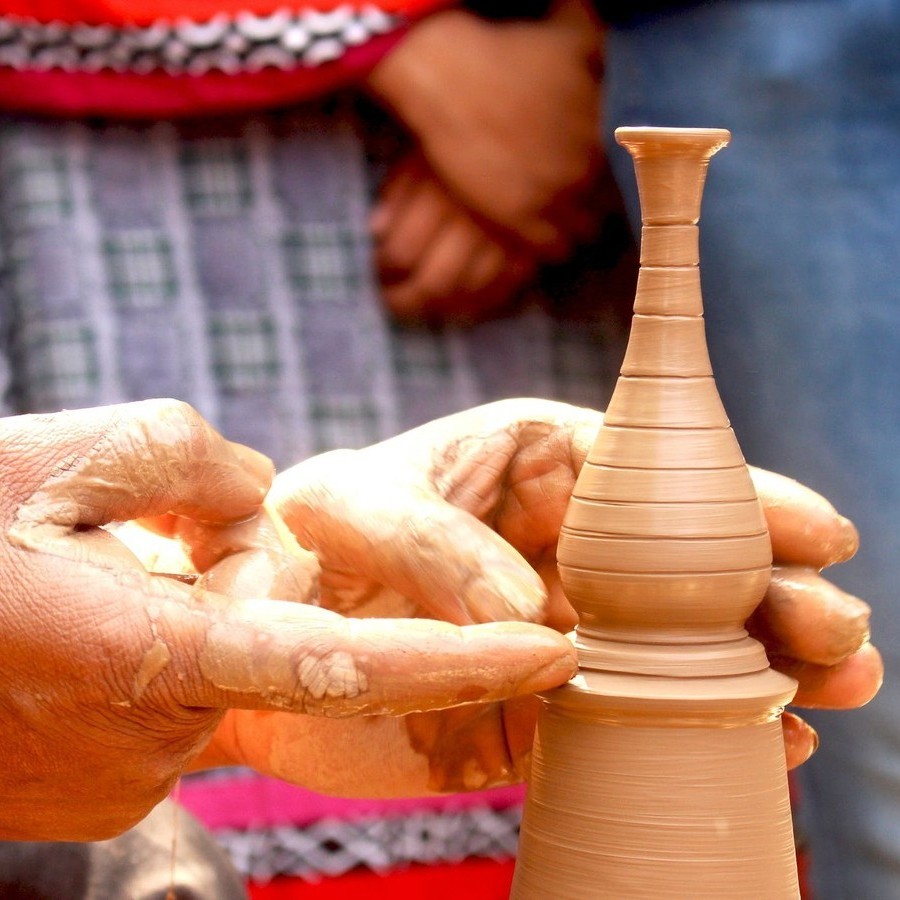
Tuzmo is an online platform that connects tourists and travelers with authentic artisans in a destination. They make it possible to support artisans at a time when travel disruptions have threatened millions of livelihoods around the world. Travelers have the option to meet artisans in person. They can also have purchases delivered to local accommodation or shipped to their home country. Local representatives and translators help artisans enroll and list their handmade crafts on the marketplace. Tuzmo partners with artisan groups, fair trade organizations, and social enterprises that help revive and preserve cultural heritage, use local raw materials, and create sustainable livelihoods in disadvantaged communities. They are establishing a parallel foundation to support social and environmental causes for a sustainable artisanal economy.
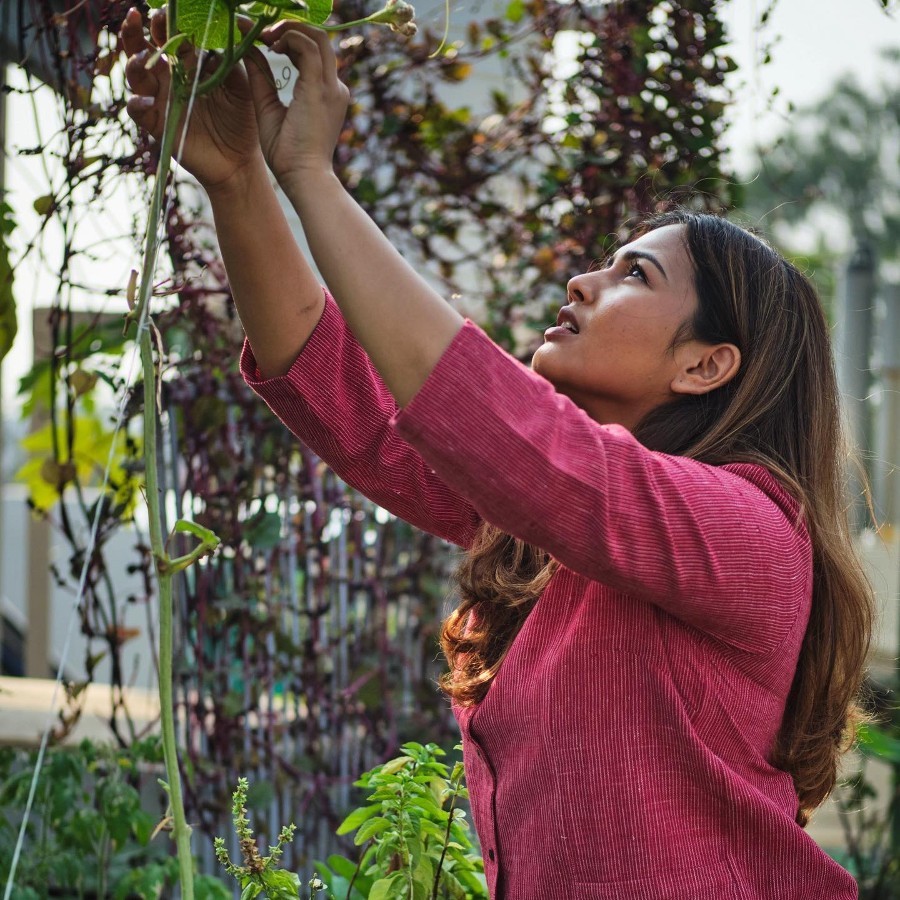
Earthwhile creates comfortable handwoven clothing in India from low-impact indigenous cotton and other consciously sourced materials. They partner with farming organizations in Kutch and Maharashtra that focus on traditional organic cotton production. Earthwhile uses environmentally responsible dyes and materials including plant-based natural dyes and tagua nut buttons. They are part of Creative Dignity and Flourish.
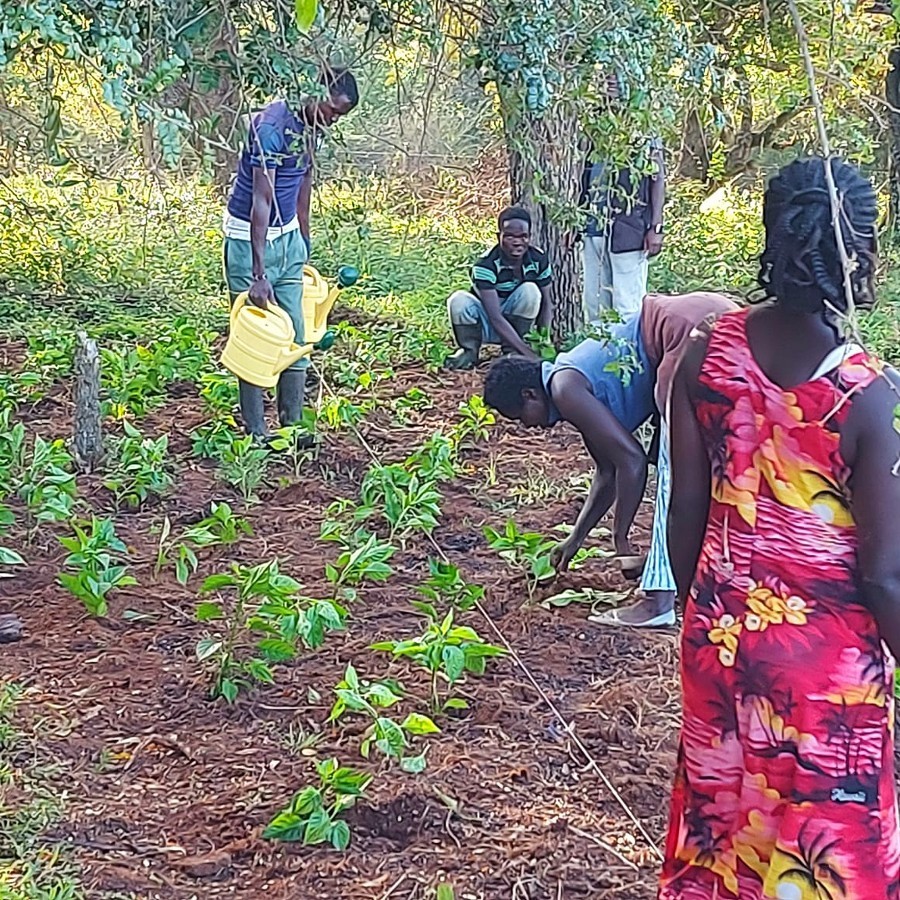
KnK Peppers specializes in value-added chili products that create livelihood opportunities for people in Kenya. They are developing a chili pepper center of excellence at Utonga Pepper Estate, their nucleus farm next to Lake Victoria. KnK Peppers produces indigenous and locally researched varieties of chili pepper seed, works with a network of small-scale local farmers as outgrowers, processes the harvest under international food safety standards, and markets products under their Apilo brand. Products include dried chili, chili powder, and natural chili rubs, purees, pastes, sauces, jams, chutneys, honey, and oils. The center provides training opportunities, housing, water, and electricity for staff. Poverty, early marriage, forced labor, and gender based violence are prevalent in Utonga district. KnK Peppers supports local education institutions to help ensure all children in the area have access to a bright and productive future.
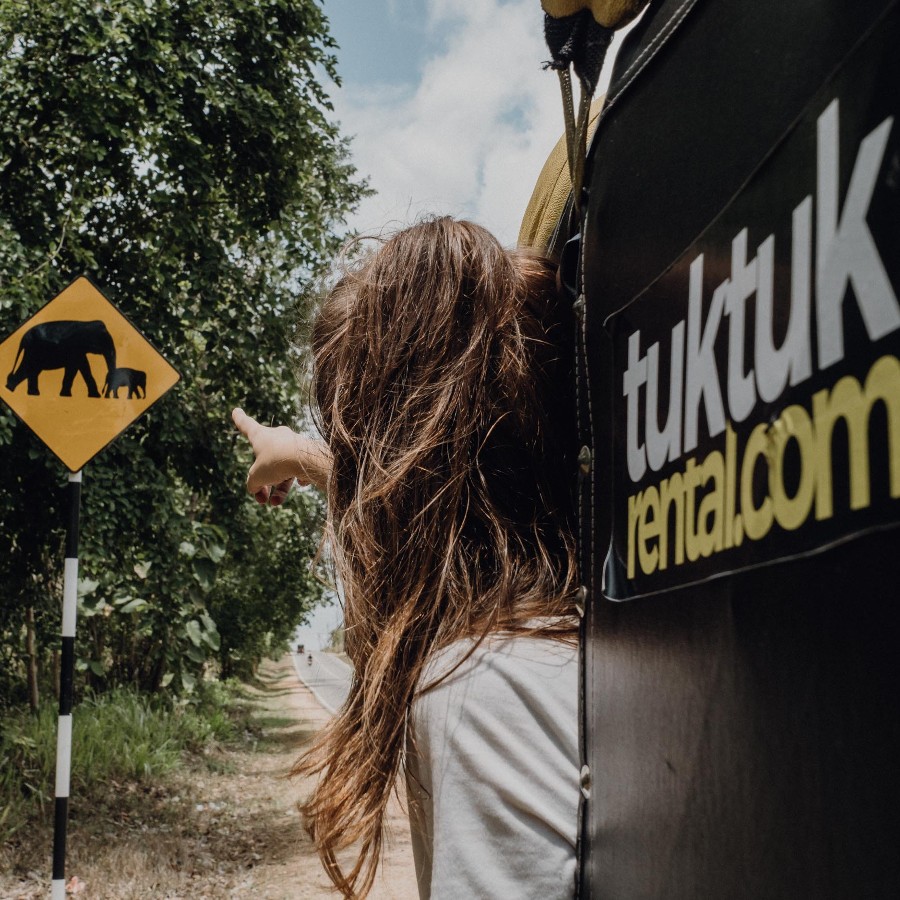
Tuktuk Rental enables travelers to break down social and cultural stereotypes and explore off the beaten path while helping local Sri Lankan families boost their income. Many tuktuk drivers take loans to pay for their vehicles and can struggle to earn enough each day to repay the loans, cover costs, and support their families. As a social enterprise, Tuktuk Rental doesn’t own tuktuks, they rent them from their network of local tuktuk owners at up to five times the regular rate. This enables owners to transition out of full-time tuktuk driving and into higher skilled careers. Rental includes unlimited kilometers, tuktuk driving lesson, comprehensive insurance, a lockable storage box, itinerary advice, and 24/7 support. They also offer seatbelts, baby seats, coolers, bluetooth speakers, and surfboard roof racks. Tuktuk Rental offsets carbon emissions for their own operations and for the kilometers driven by customers. Fifty percent of their gross income goes directly to their social cause.
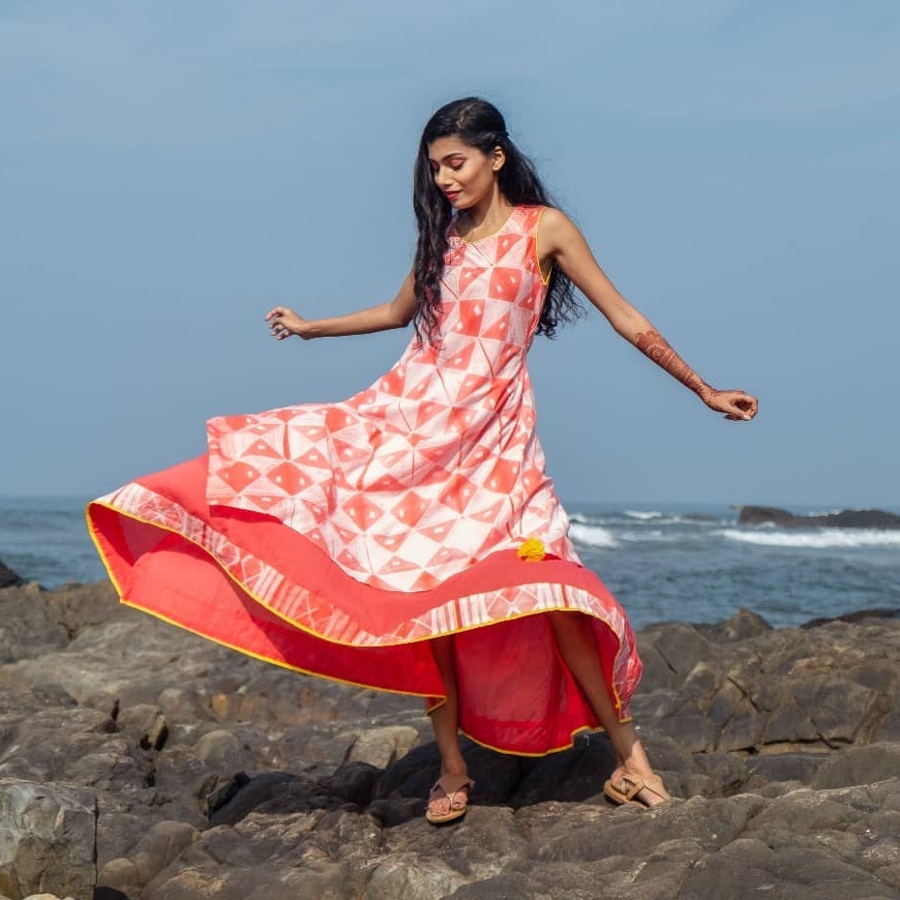
Amar Kosa creates ethical, environmentally responsible clothing and accessories that showcase handwoven natural textiles and traditional techniques like block printing, ikat, and shibori. They directly source handcrafted fabrics from rural producers throughout India at fair rates set by the artisans. Fabric offcuts are upcycled to create bags and other accessories. Amar Kosa offers plus size curvy fashion, style consultations, and custom designs. Customers can choose from fabrics in their Bangalore studio or bring their own fabrics and sarees for reuse. They maintain long-term relationships with customers and offer unlimited alterations to extend the lifecycle of each piece.
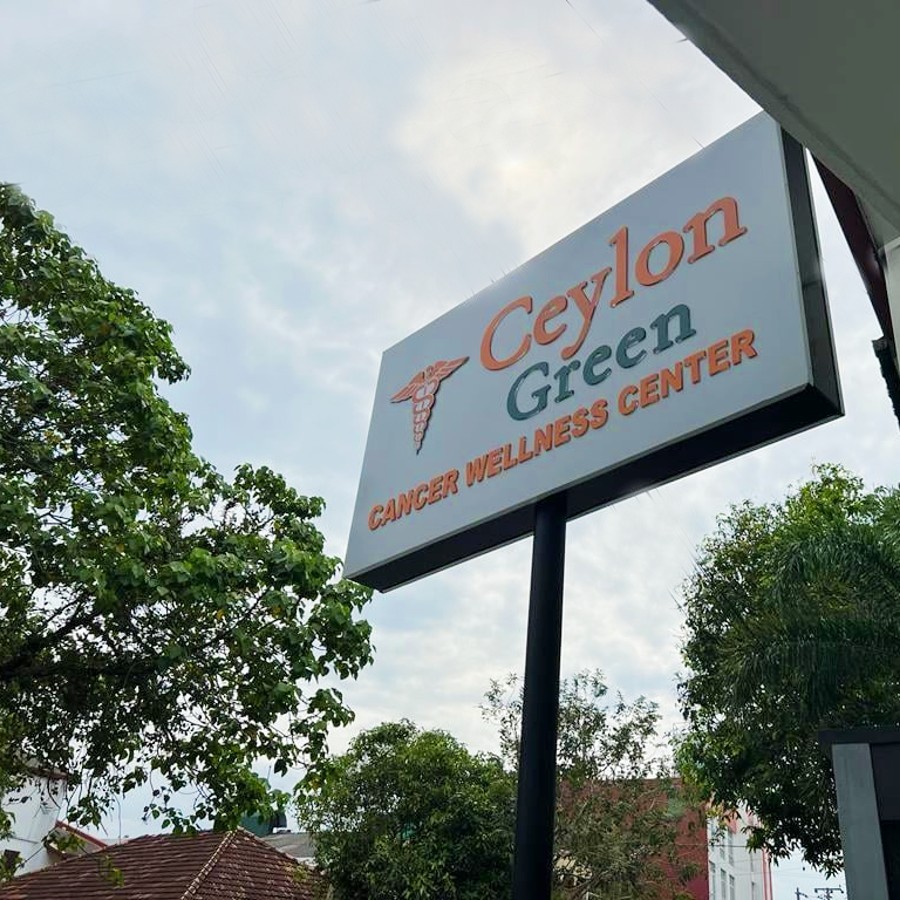
Colombo, Sri Lanka
Ceylon Green Ayurveda uses Sri Lankan Ayurvedic plants to create value-added natural wellness products. Their two flagship products, Praana and Alpha Elostera, were developed by scientists at the University of Peradeniya after years of research and testing. Praana is a natural immune booster that is particularly effective against respiratory illnesses. Active ingredients include thalis pathra, una kapuru, sukiri, pepper, long pepper, cinnamon, cardamom, and ginger. Alpha Elostera contains bitter gourd and cinnamon bark oil and is used for cancer prevention and treatment. Trials included more than 3,000 patients and production facilities are now established in Kandy. Low-income customers that provide medical reports, income statements, and a letter from their Grama Sevaka are eligible for a 50 percent discount. Ceylon Green Ayurveda has a team of medical doctors and Ayurveda physicians that follow up with all patients. They are registered under the Department of Ayurveda.
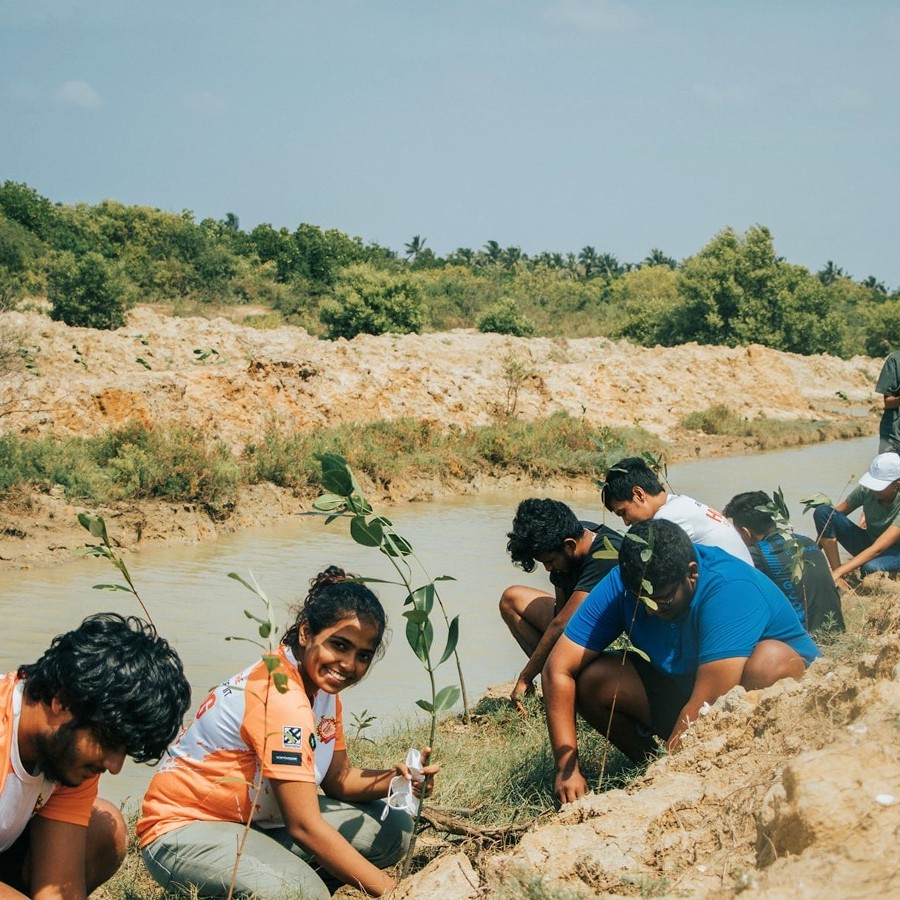
Rotaract Club of Informatics Institute of Technology (IIT) is a youth-led voluntary organization that is committed to enriching the lives of their members and creating a positive impact through service, fellowship, and integrity. They were established in 2010 under the Rotary Club of PanColombo. One of their signature projects, E-Mithudama, aims to increase the computer literacy of school children in rural, underprivileged areas of the country. Other projects have focused on tree planting, eco brick production, beach cleanups, and awareness campaigns to reduce the stigma associated with menstruation. The Scrap Shop is an upcycling initiative that transforms waste materials into useful products. Rotaract Club of IIT operates on a not-for-profit basis. All funds are used for community service projects.
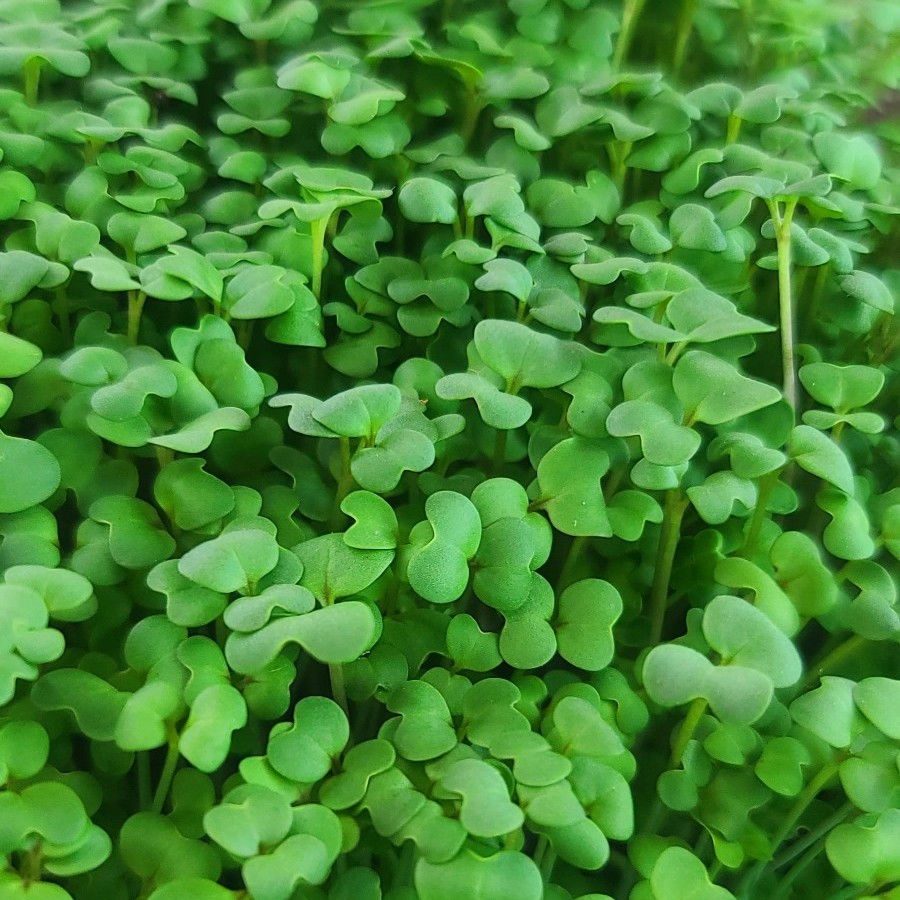
Earth Bar aims to make Sri Lanka a healthier nation by growing nutrient-dense microgreens and edible flowers. Microgreens are considered superfoods because they contain up to 40 times more vitamins, minerals, and antioxidants than mature plants. Earth Bar focuses on urban vertical farming systems that require less water, space, and resources than conventional farming. They use renewable energy and locally sourced organic fertilizers with no synthetic fertilizers, fungicides, or pesticides. Their plastic grow trays are reusable and recyclable. Earth Bar provides microloans to workers to uplift their living standards.
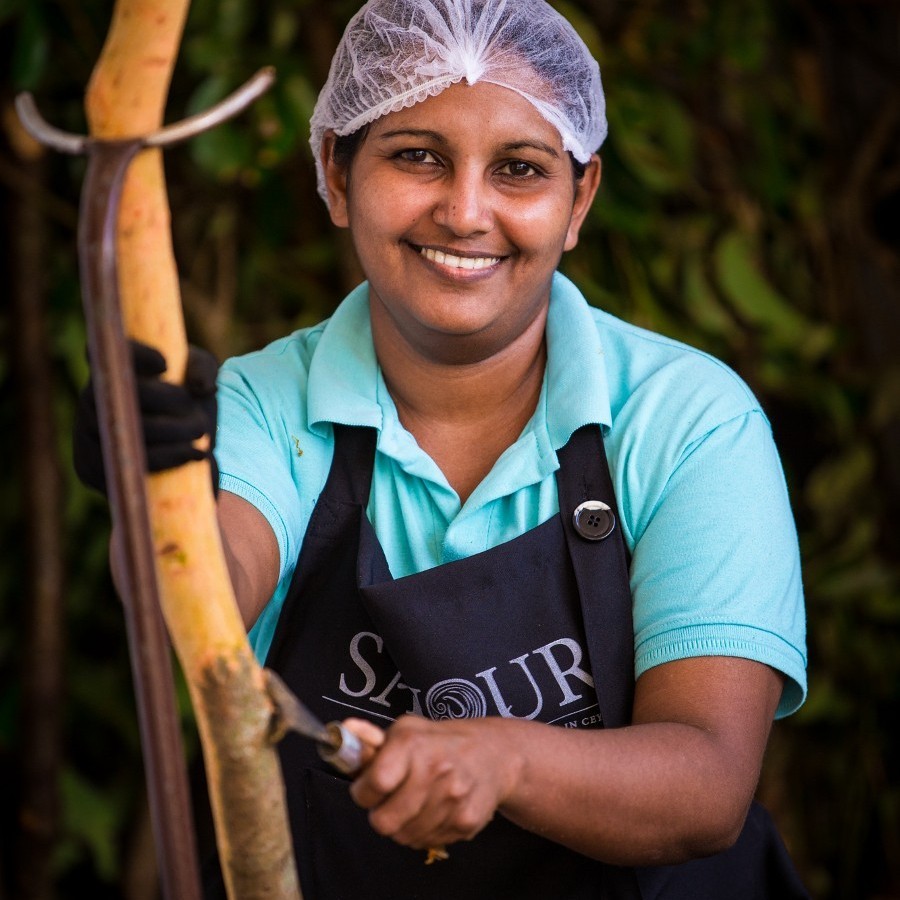
Lellopitiya, Sri Lanka
Savour Route produces premium Ceylon cinnamon to the highest international standards and provides fair trade livelihood opportunities in their local community. They combine the traditional craft of cinnamon peeling with modern hygienic equipment and facilities. The company has three female directors and a 90 percent female workforce. They offer a daily wage premium, training opportunities, and a profit sharing system for all workers. Cinnamon is sourced from organic and sustainably managed fields. The outer bark scraps are used to produce compost, the wastewater from the cinnamon soaking tank is used for irrigation, and the peeled cinnamon trunks are giving to the local community for firewood and agricultural purposes. Savour Route has USDA and EU organic certification.
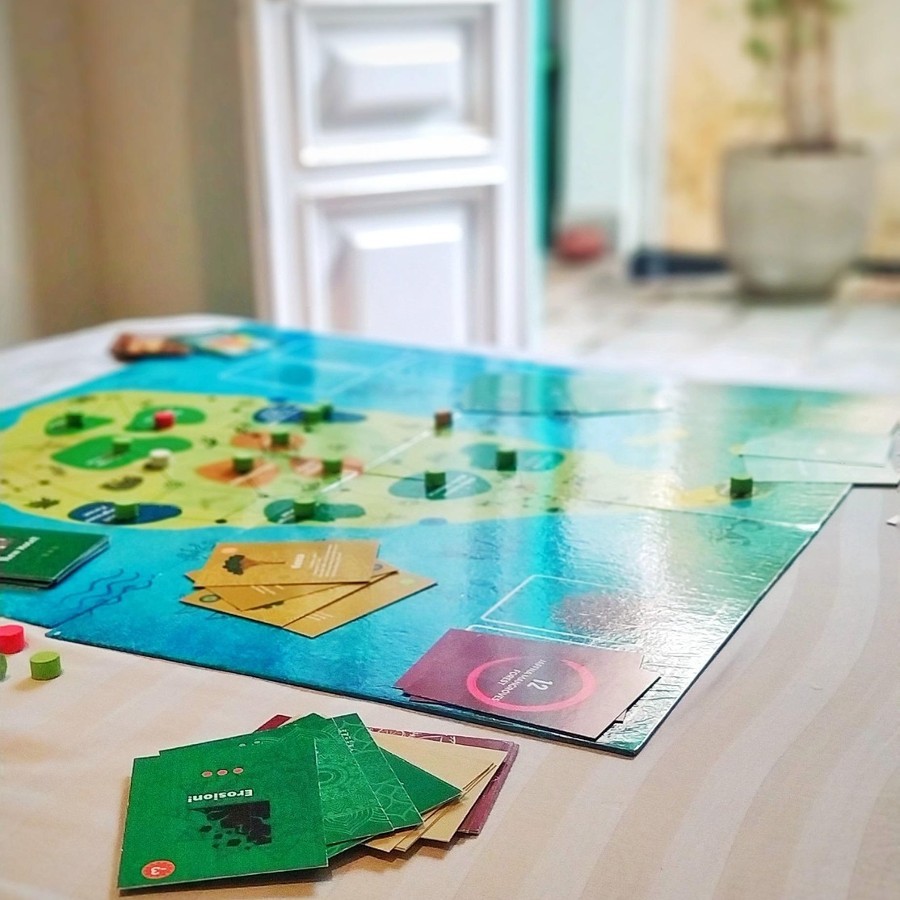
Ocean Theory designs educational games and tools to help children and adults better understand important topics in Sri Lanka through fun, positive interaction. Their games are plastic free, locally produced, and more affordable than imported alternatives. Evergreen is a board game where players plant trees and protect forests while improving critical thinking and problem solving skills. Tales of Taprobane is a card game where players create uniquely Sri Lankan folk stories while developing creativity, memory, and communication skills. Little Healer is a board game where players take a journey and heal patients with Ayurvedic medicine and their memory power. Ocean Theory donates a portion of profits from Evergreen to local tree planting and wildlife conservation organizations.
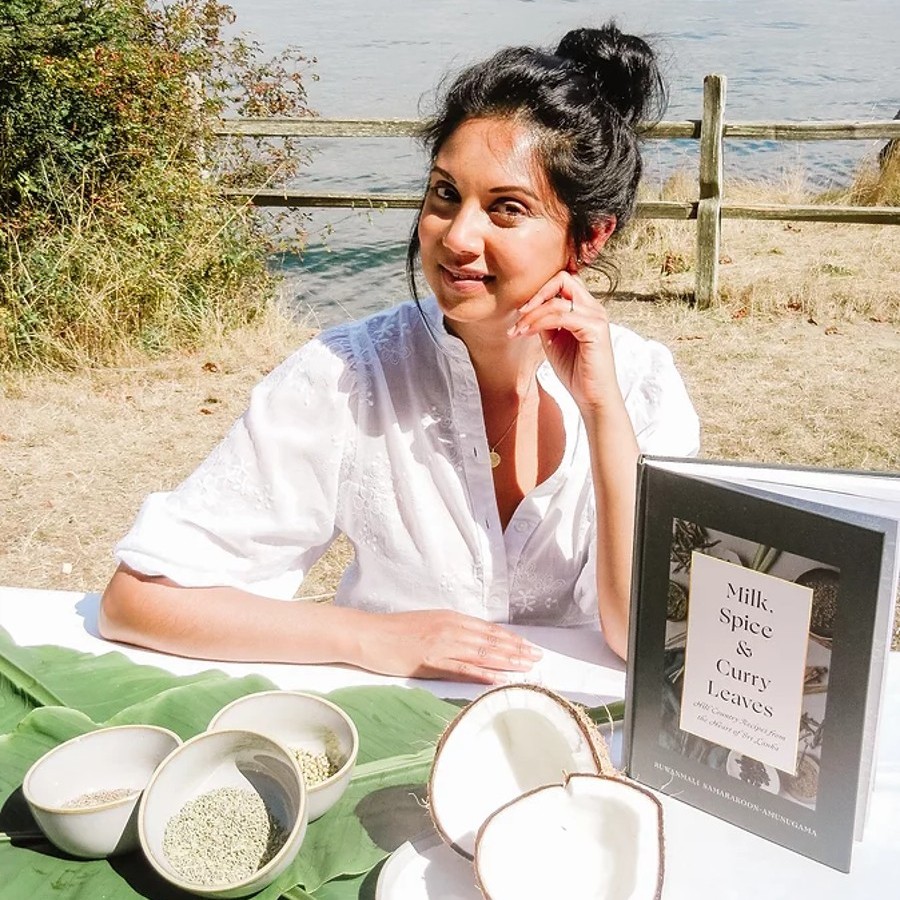
Savouring Serendipity aims to raise awareness of traditional Sri Lankan recipes, cooking methods, and spices and make them accessible to a North American audience. Their cookbook, “Milk, Spice & Curry Leaves” includes more than 60 family recipes from the Kandyan hill country with helpful trips and tricks, details on specialty ingredients like goraka, pandan, tamarind, and young jackfruit, and recommendations for home cooks in Canada and the United States. Savouring Serendipity also offers a dark roasted curry powder that is made in small batches in partnership with a local Mercer Island kitchen. The curry powder can be used in vegan and vegetarian recipes. A portion of proceeds from the cookbook go to grassroots community programs in Sri Lanka.
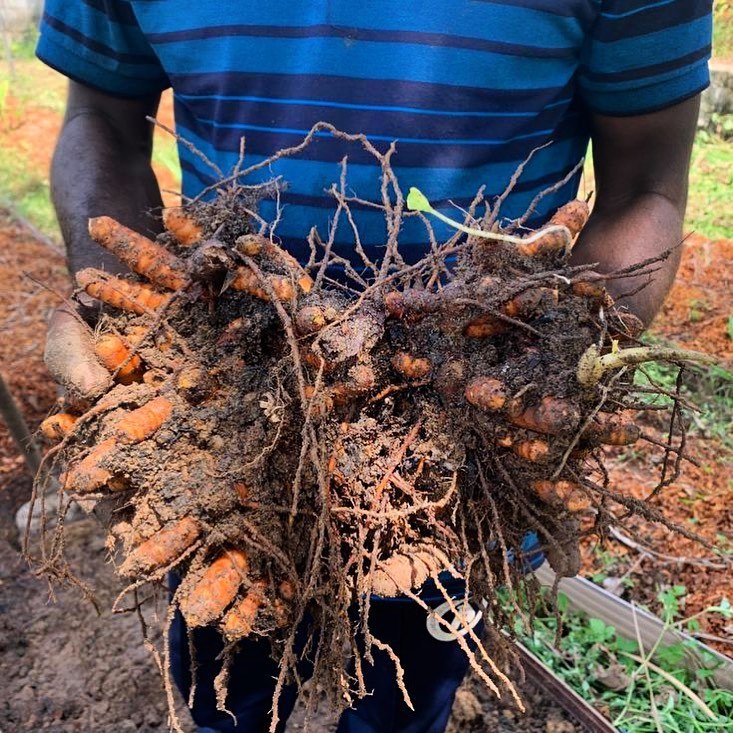
Ceylon’s Curry Bowl aims to to end inequality and exploitation in the spice trade by bringing ethically sourced spices from small-scale farmers directly to customers. They started by offering cinnamon quills, cinnamon powder, and turmeric grown from their own permaculture farm in Bataliya. The farm produces its own compost and natural fertilizers and does not use any synthetic agrichemicals. They are now expanding to source from neighboring farms with the same values and quality standards. Ceylon’s Curry Bowl is committed to equitable, transparent, fair trade supply chains and long term trade relationships. This benefits partner farmers and provides fresher, more flavorful spices to end consumers. Profits are used to ensure the welfare of their employees and their families, partner farmers, and the surrounding community.
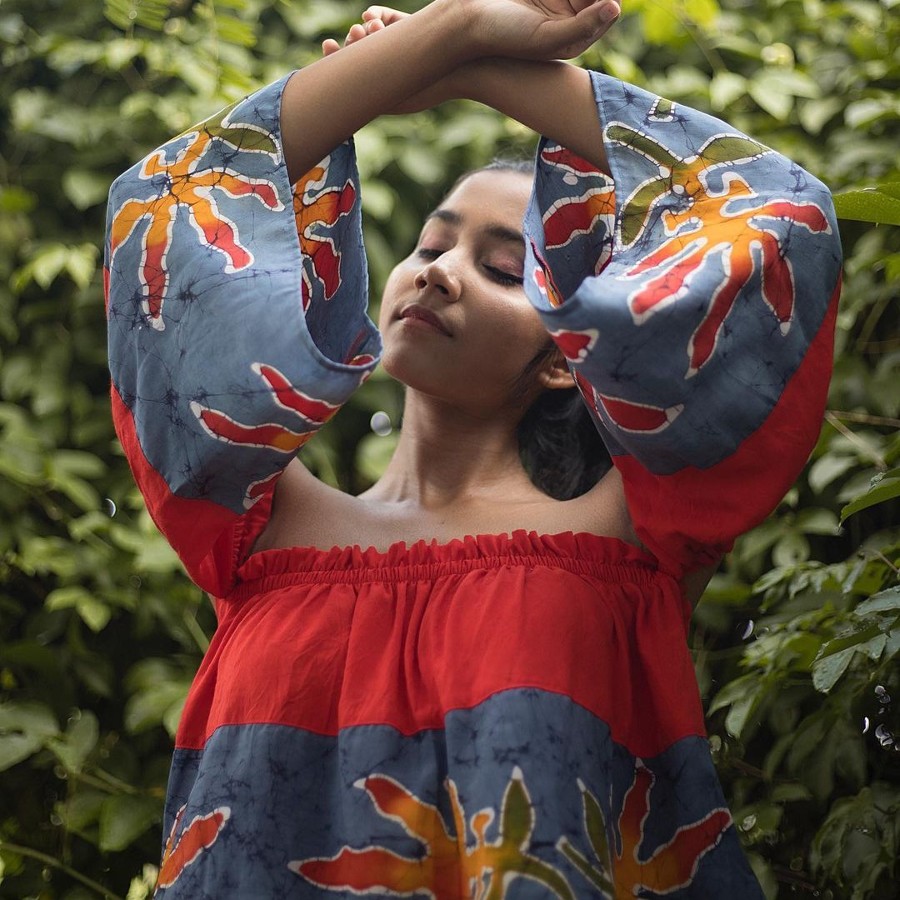
Hues of Batik creates ethical designer wear from locally dyed fabrics and provides flexible livelihood opportunities to women in the Rajagiriya area who are unable to seek traditional employment. They specialize in quality craftsmanship and long-lasting classic designs. Hues of Batik partners with a small dye workshop that has onsite water treatment facilities and follows environmental best practices. Their Zero Waste collection is made from offcut batik materials. They create unique hand embroidered patchwork designs from small fabric pieces and handwoven belts from the smallest scraps.
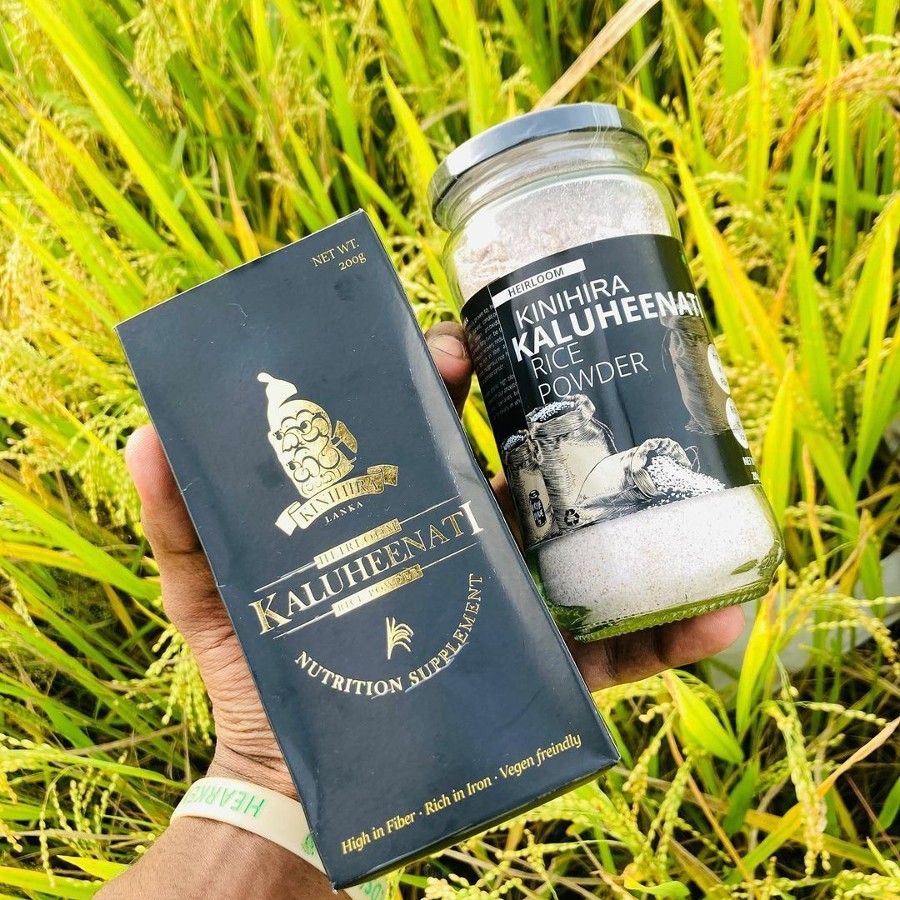
Kinihira sources Sri Lankan heirloom rice from a farm in Kurunegala and produces kaluheenati rice powder as a nutritional supplement. In traditional medicine, kaluheenati is recommended for lactating mothers, diabetes control, and hepatitis. It is high in fiber, iron, and antioxidants. Kinihira packs their products in reusable glass jars to avoid plastic pollution and minimize waste.
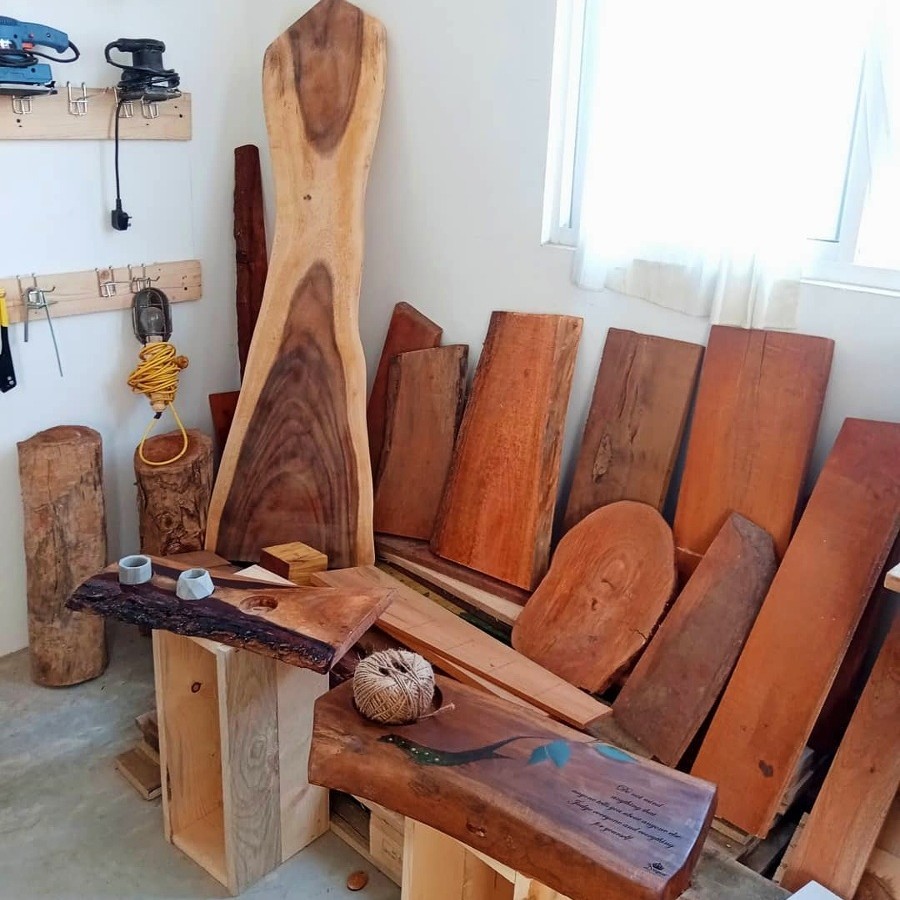
The D-signer reduces waste and plastic consumption by transforming scrap wood into custom wooden housewares and artwork. They source offcut wood from carpenters and small-scale manufacturers in the Moratuwa area and make products to order according to customers’ requirements. The D-signer specializes in wood carving and laser cutting to create sign boards, plaques, personalized gifts, and more. They preferentially hire at-risk urban youth that are coming out of rehabilitation programs and donate two percent of revenue to tree planting programs.
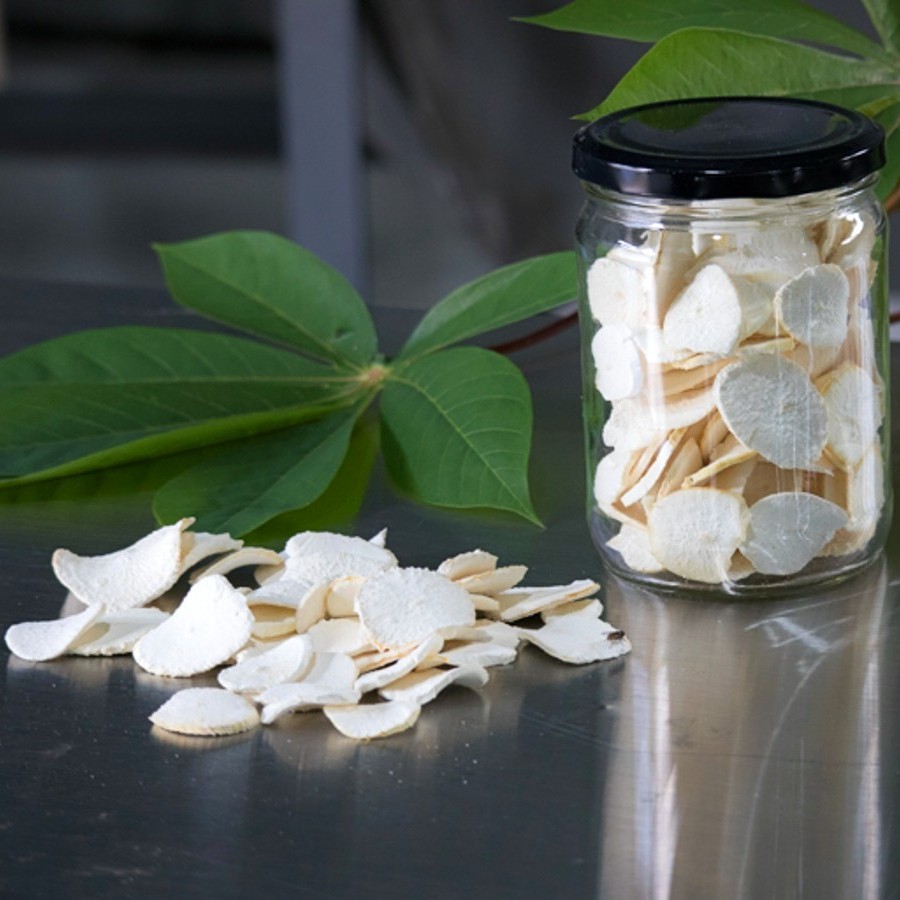
PELCOMO works with rural families following ecological farming practices to create local, value-added foods that are healthy and affordable. Products include dehydrated fruits, vegetables, and herbs, cassava flour, spices, kithul jaggery, and sesame sweets. They are currently collaborating with the Kadanhene Saubagya Production Village on a dehydration project to benefit low income families and uplift the rural economy. PELCOMO trains suppliers on cultivation and harvest practices to improve quality and minimize waste. They also select and train local agents to distribute products door-to-door in their own communities. This distribution system enables them to educate potential customers about product quality, offer low direct-to-consumer prices, and create livelihood opportunities for low income groups. Products are provided at discounted rates to employees, nonprofit organizations, and people in need. PELCOMO separates, recycles, and tracks their factory waste. They are working to develop environmentally responsible packaging solutions.

Flair Thread uses patchwork and hand embroidery techniques to create clothing from upcycled cotton and linen fabric remnants. Any unused fabric scraps are sent to another local designer that produces patchwork housewares. They prevent apparel factory waste from going to landfills and provide employment opportunities to women from low income families. Revenue is used to fund the education of children in eastern Sri Lanka that lost their parents during the civil war. Flair Thread raises awareness about fast fashion, zero waste, and the importance of bridging the gap between Sinhala and Tamil communities.
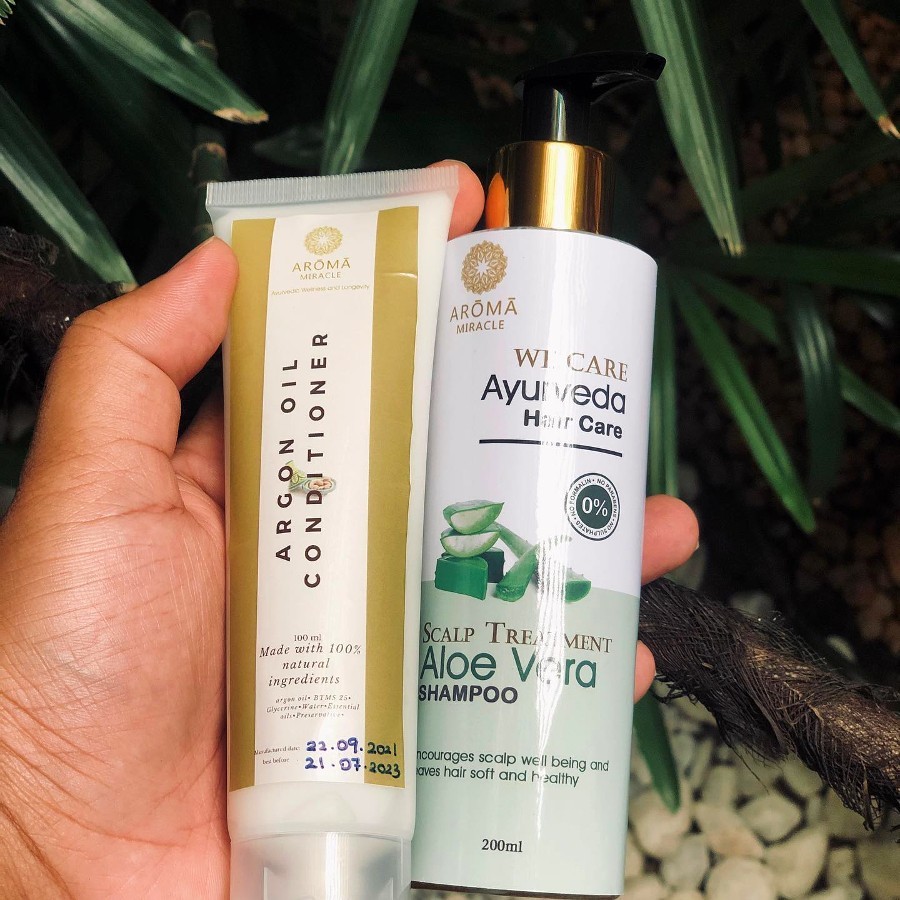
Aroma Miracle produces natural serums, scrubs, cleansers, face creams, lotions, body butters, shampoos, conditioners, hair waxes, and hair oils that are free from synthetic colors, fragrances, and harmful synthetic addititives. They aim to offer an affordable local alternative to imported personal care products that contain ingredients with known health and environmental risks. Aroma Miracle prioritizes mild, plant-based ingredients that are permitted under internationational organic standards for cosmetics. They use argan oil, jojoba oil, and shea butter as well as locally sourced ingredients like aloe vera, gotukola, karapincha, neem, nelli, wild turmeric, madder, licorice root, and organic virgin coconut oil.
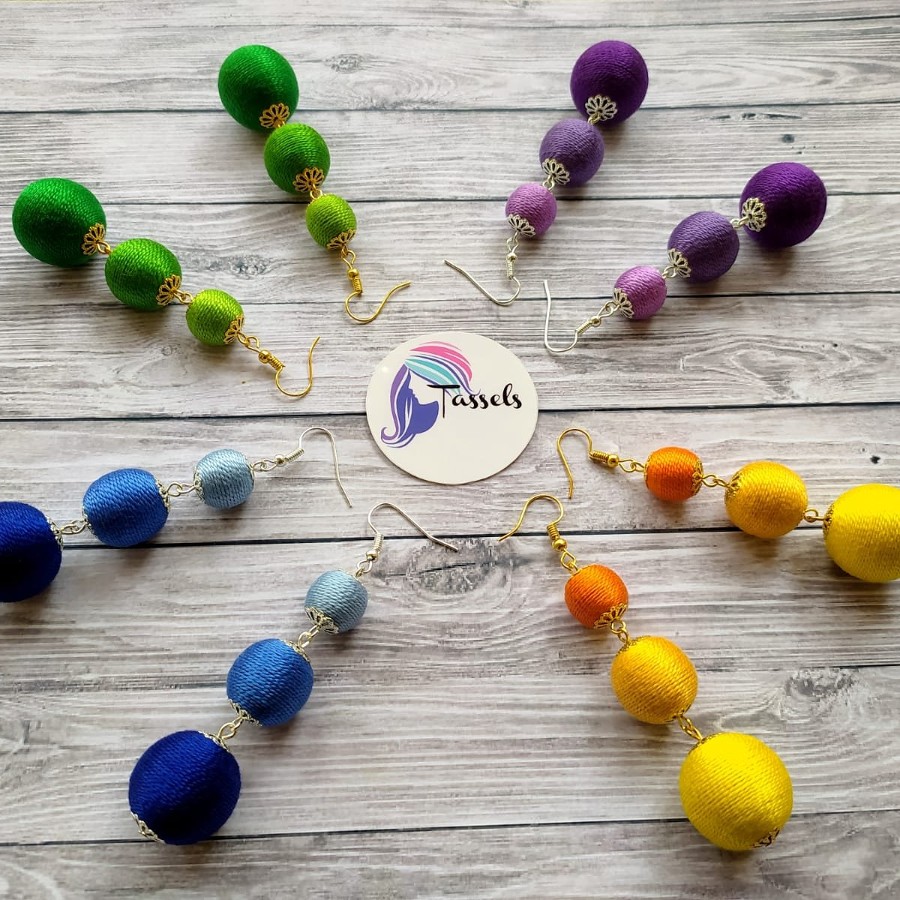
Tassels creates handmade jewelry from cotton, silk, and wood. They offer a local, natural alternative to imported jewelry made from plastic and other synthetic materials. Tassels works with a network of female distributors that generate income by selling the finished pieces through social media and small-scale shops. They sponsor gifts and prizes for university programs, female entrepreneurs, and teachers.
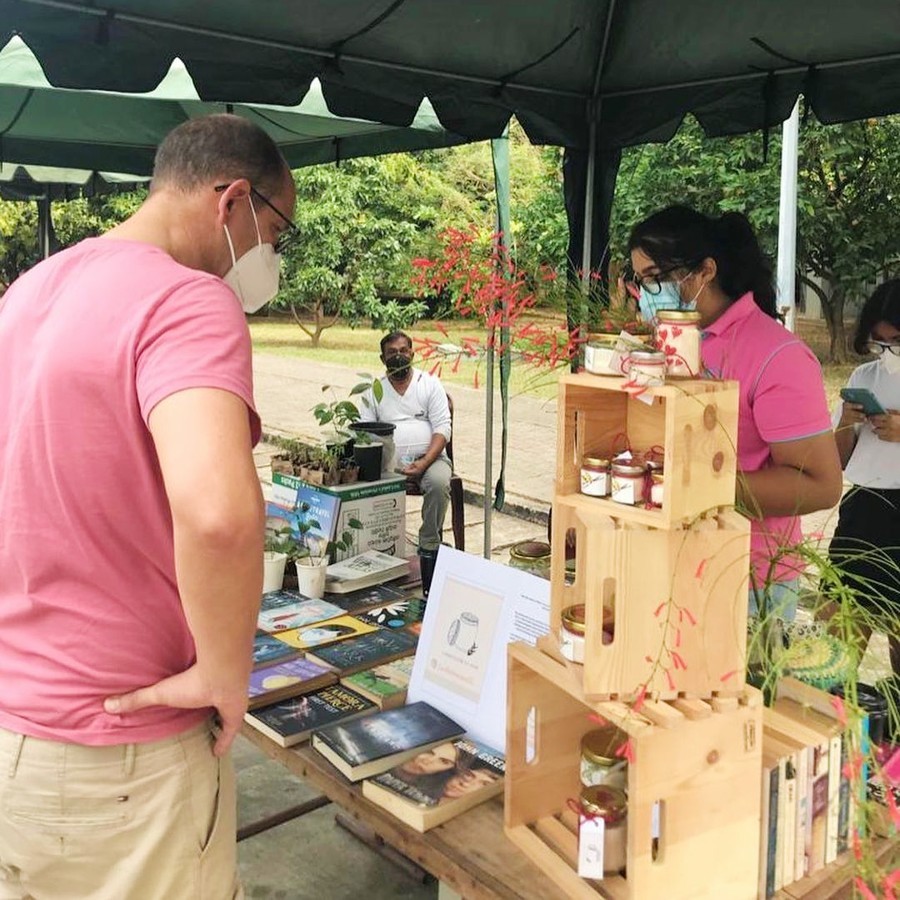
Candles for a Cause produces and sells affordable soy wax candles to raise funds for local charities. They are currently raising funds for Dental Care International, which gives girls from orphanages and low income families residential training to become professional dental assistants. The funds are used for supplementary activities like art therapy, a library, and an organic vegetable garden. Candles for a Cause also sells secondhand books, clothing, and potted plants and raises funds for wildlife conservation. The founder is a Girl Guide and a member of Pearl Protectors and the Wildlife and Nature Protection Society (WNPS).
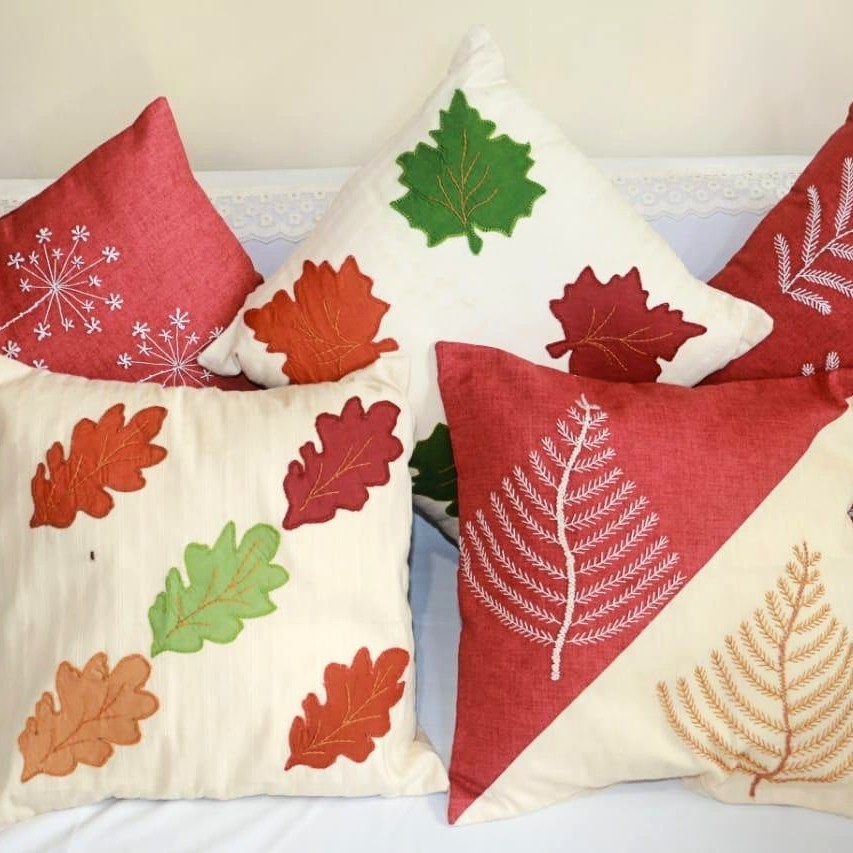
Needle & Craft sources remnant and offcut fabric and thread from local apparel factories and designers and uses them to create handmade cushions, tablecloths, runners, potholders, and other handicrafts and housewares. They specialize in hand embroidery and patchwork designs and aim to pass these skills to the next generation. Needle & Craft was started to support families that were affected by the decline in tourism in Sri Lanka after the Easter Sunday bombings and the start of the pandemic. Three percent of revenue is used to cover school expenses for children from low income families.
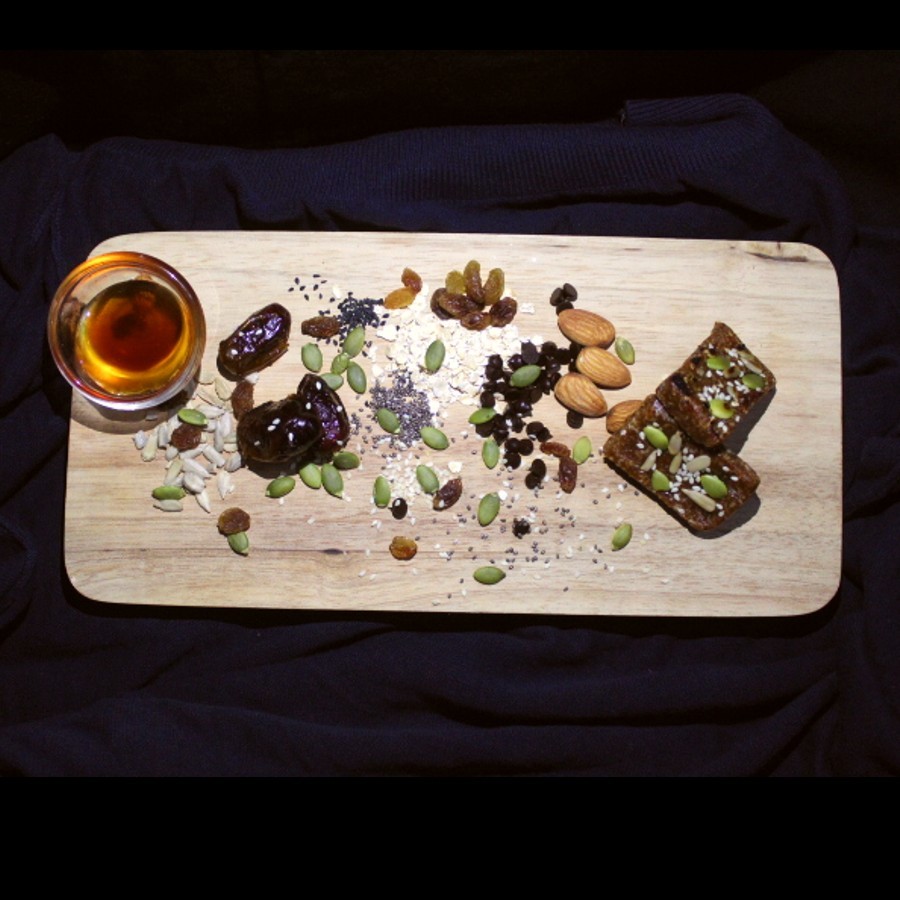
ZERO offers healthy convenience foods for people with a busy lifestyle. They specialize in cold pressed juices and snack bars made from grains and seeds. ZERO is committed to keeping products affordable and accessible. They pledge one percent of sales to supporting education for marginalized youth.
Know an initiative that’s good for people and good for the planet? The application is currently available in English, Sinhala, Tamil, Urdu, Spanish, and Japanese and started in Nepali: www.goodmarket.global/apply Want to help make it available in another language? Learn more about the community translation project here.